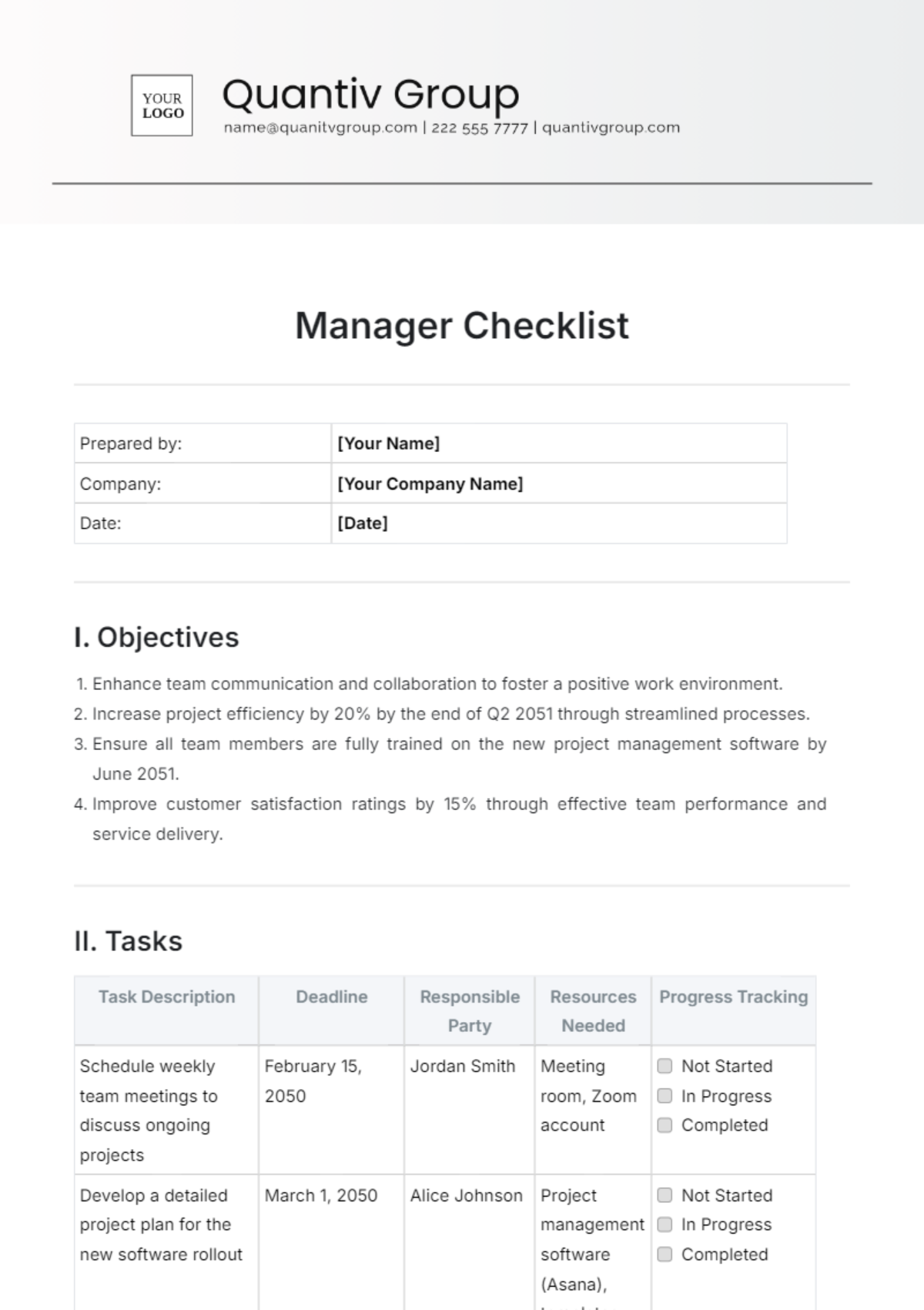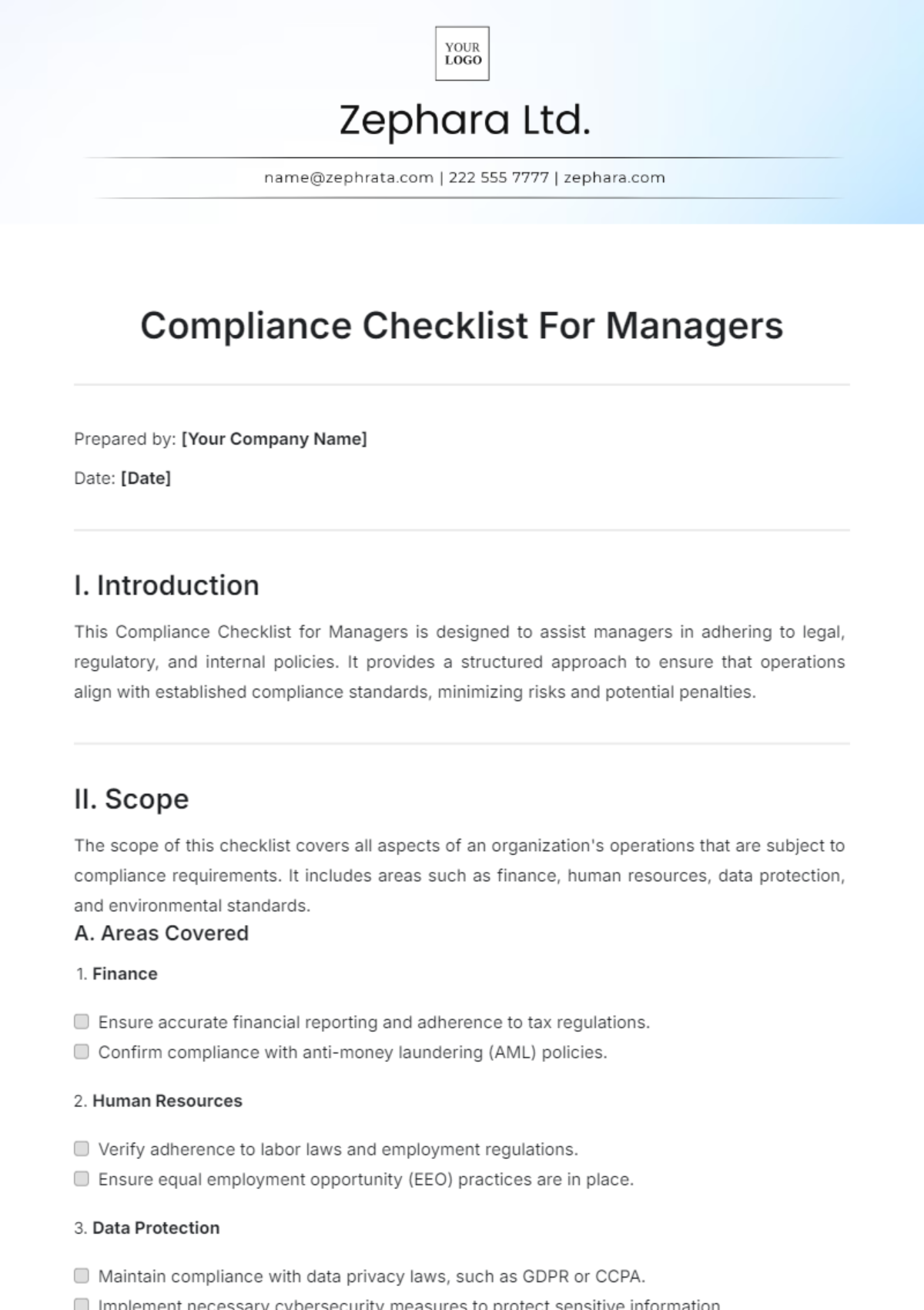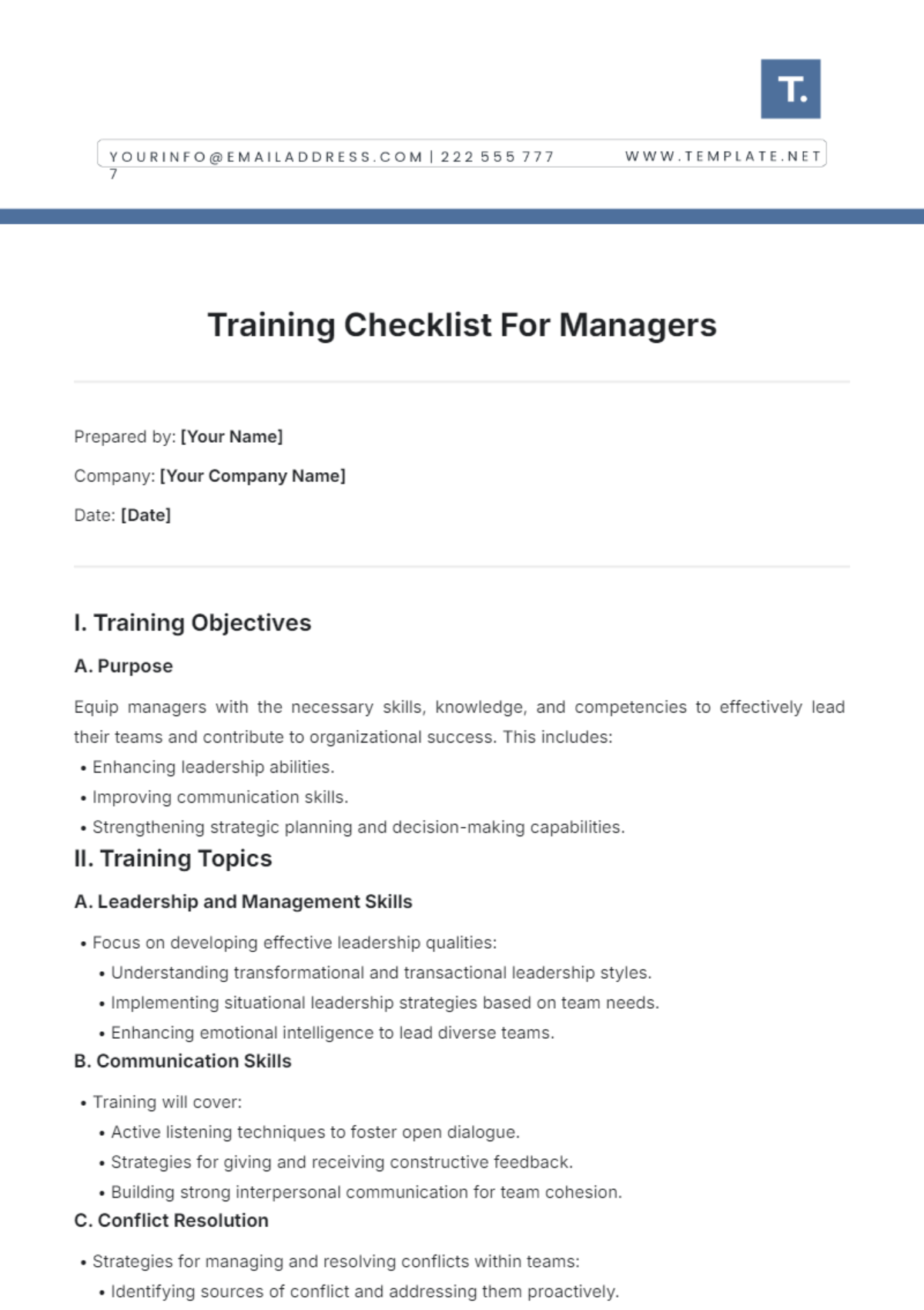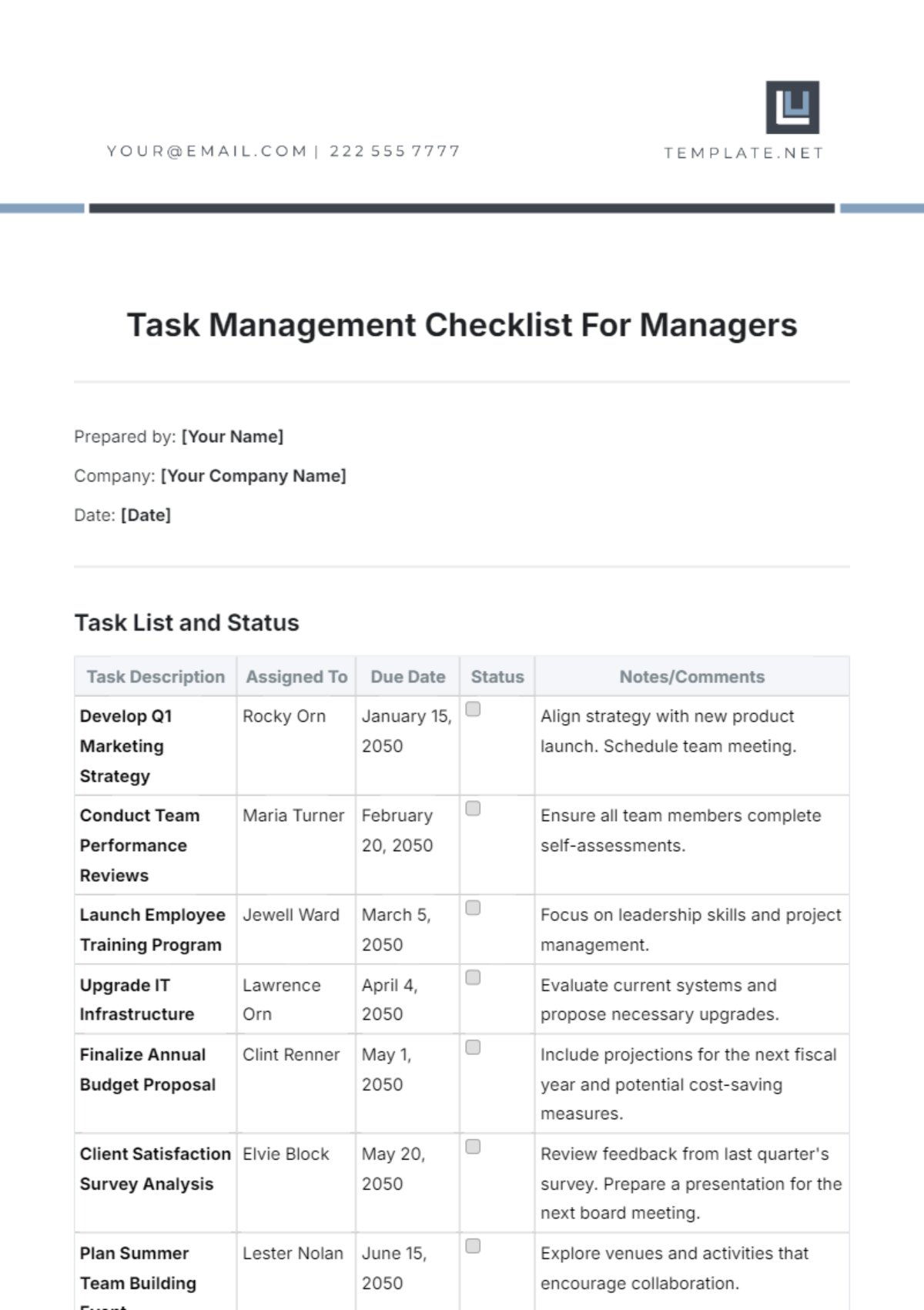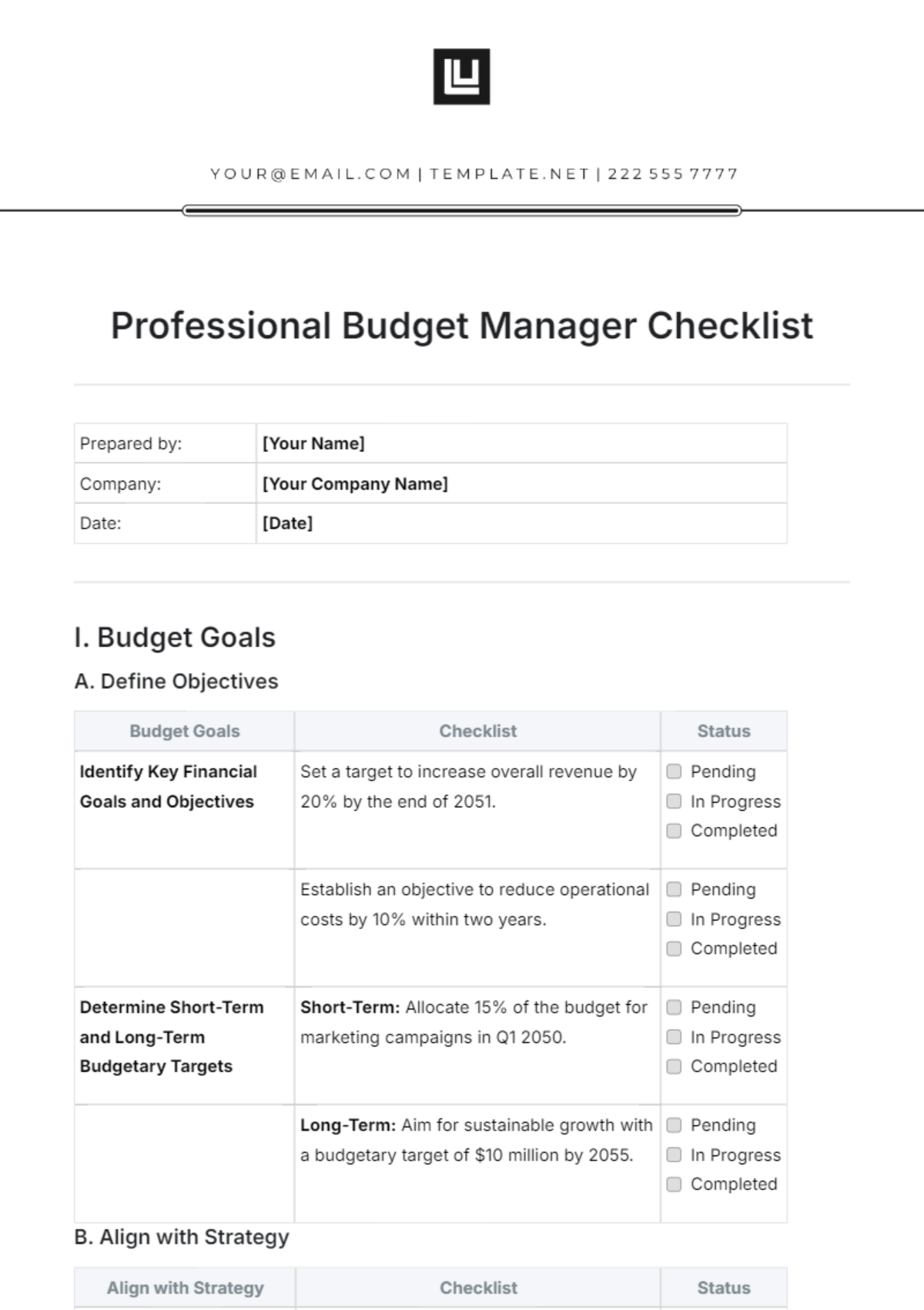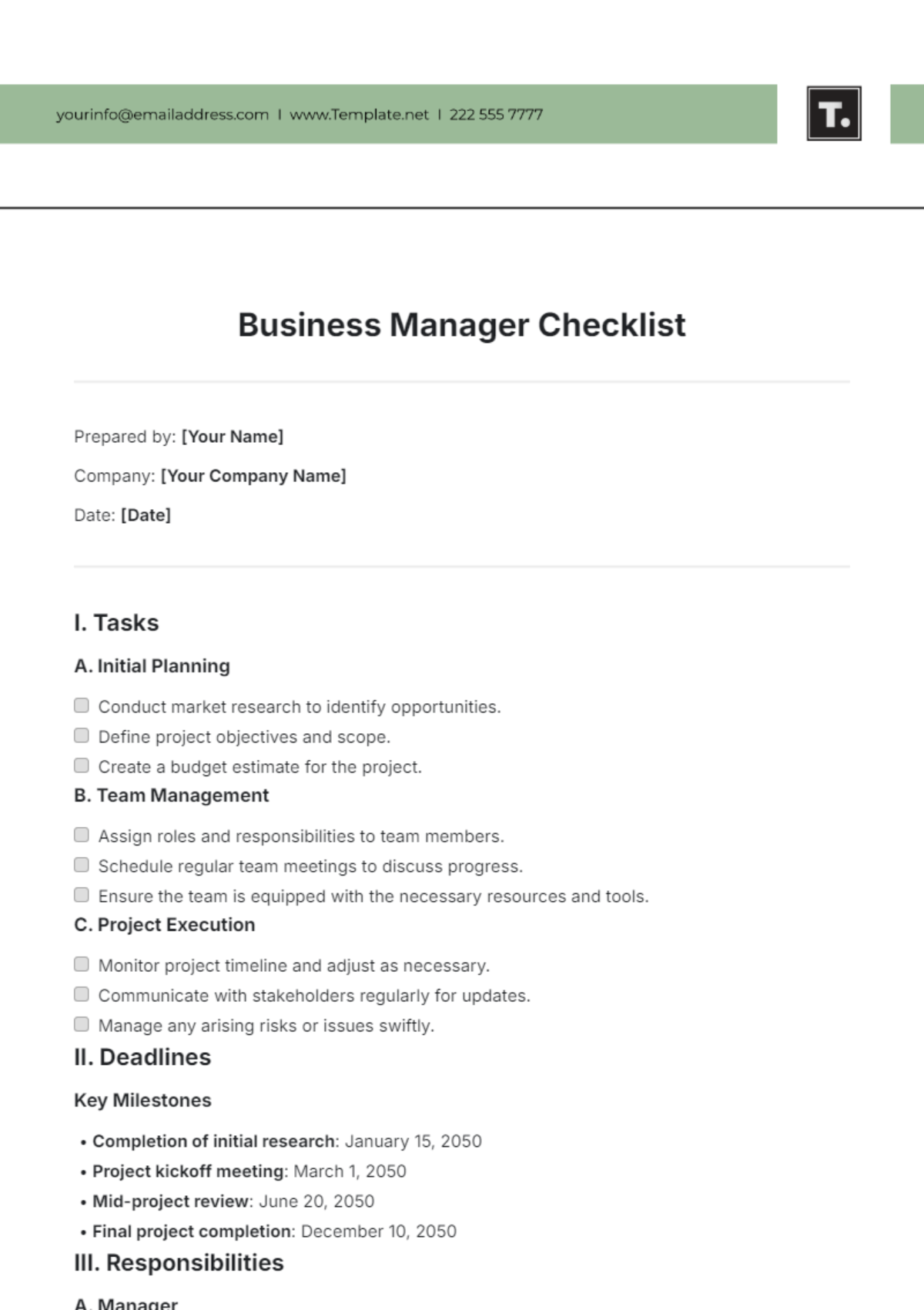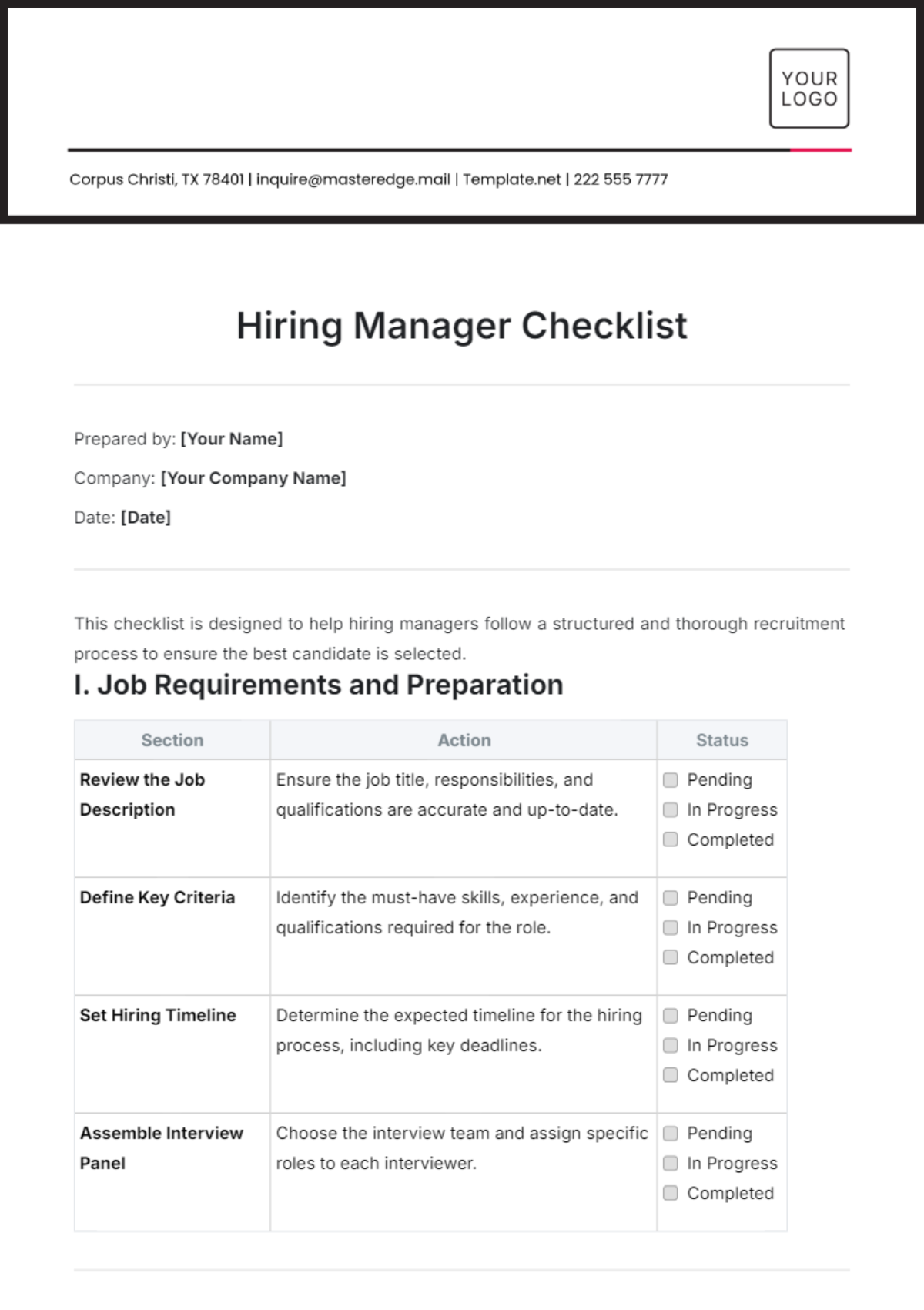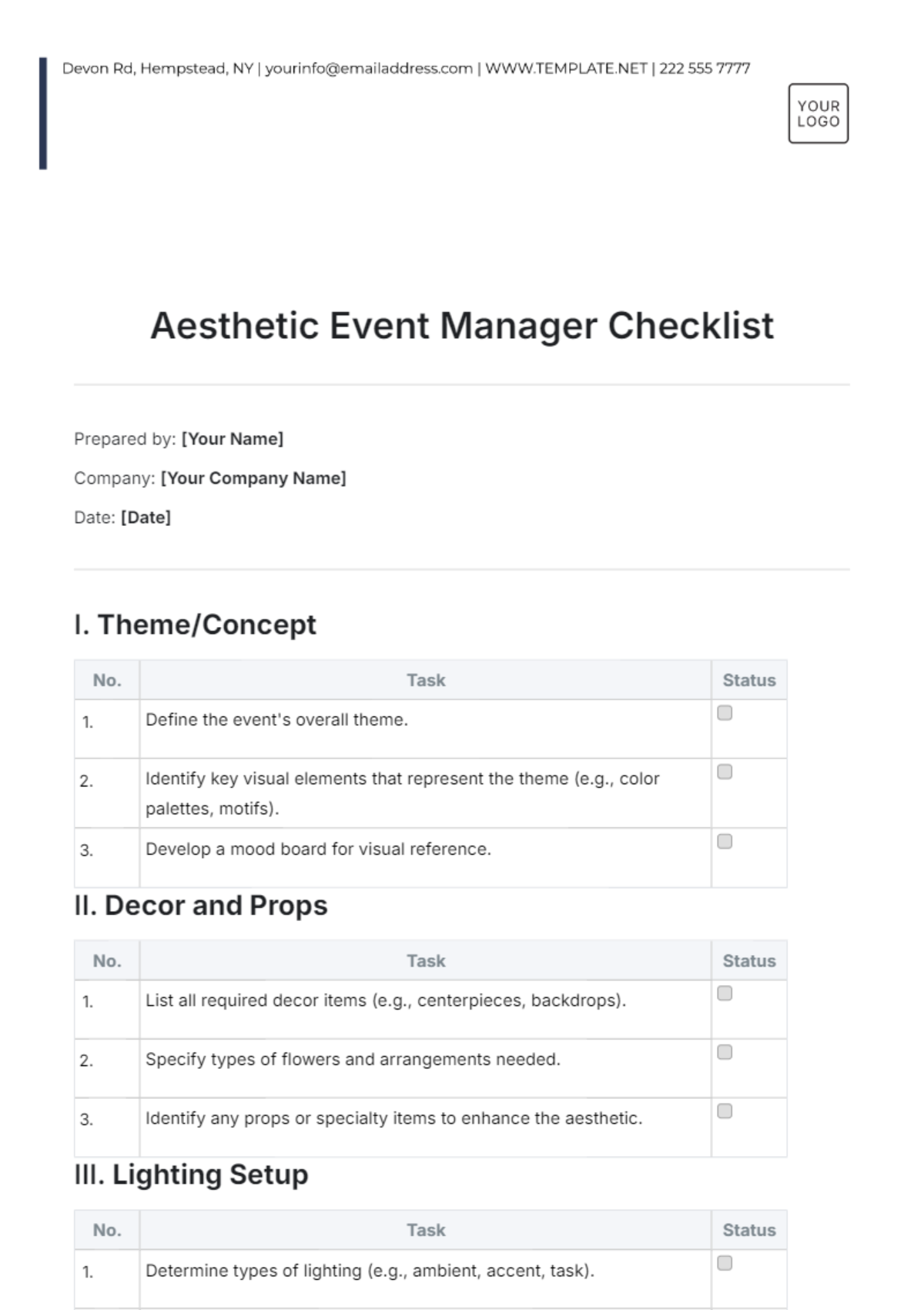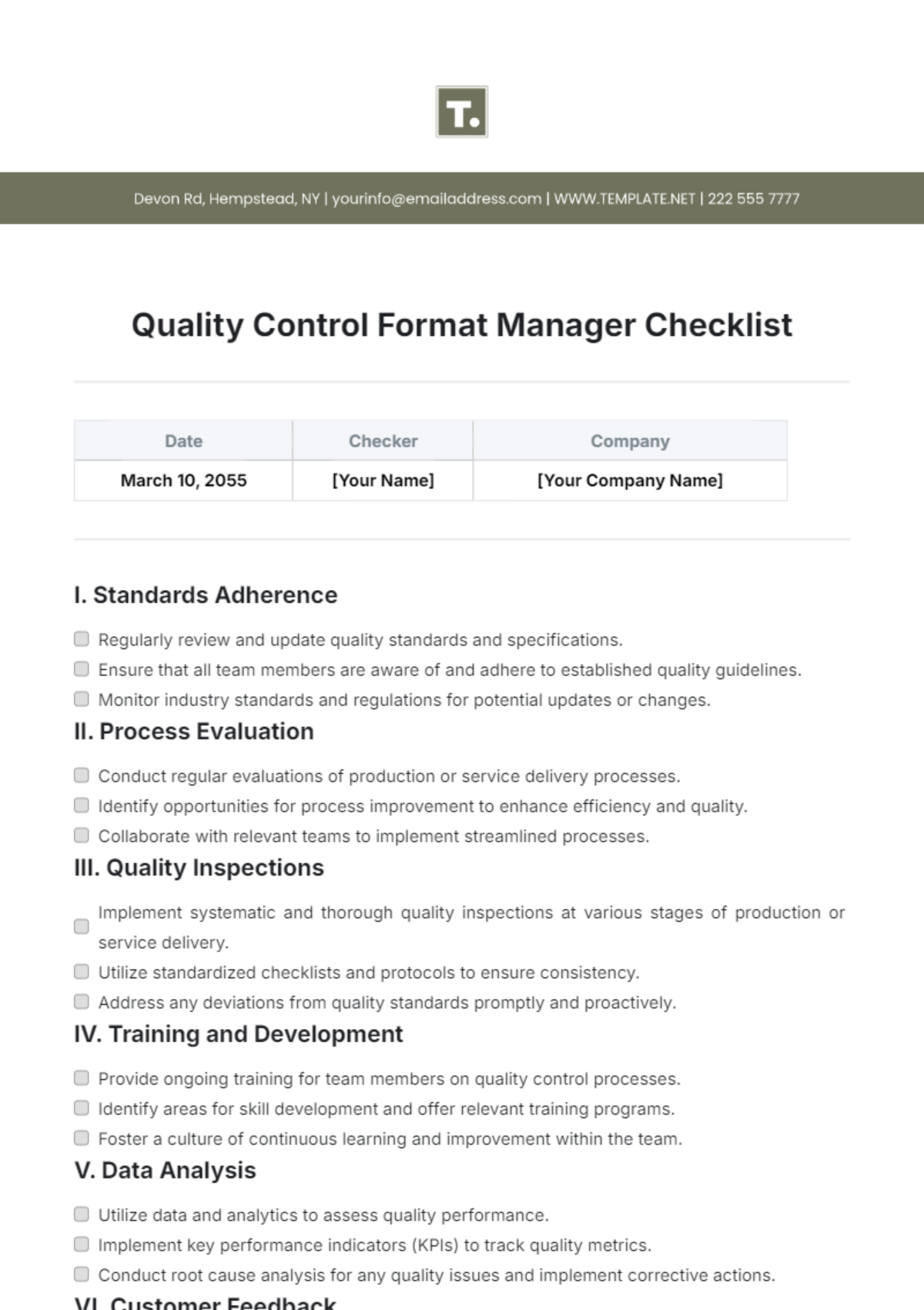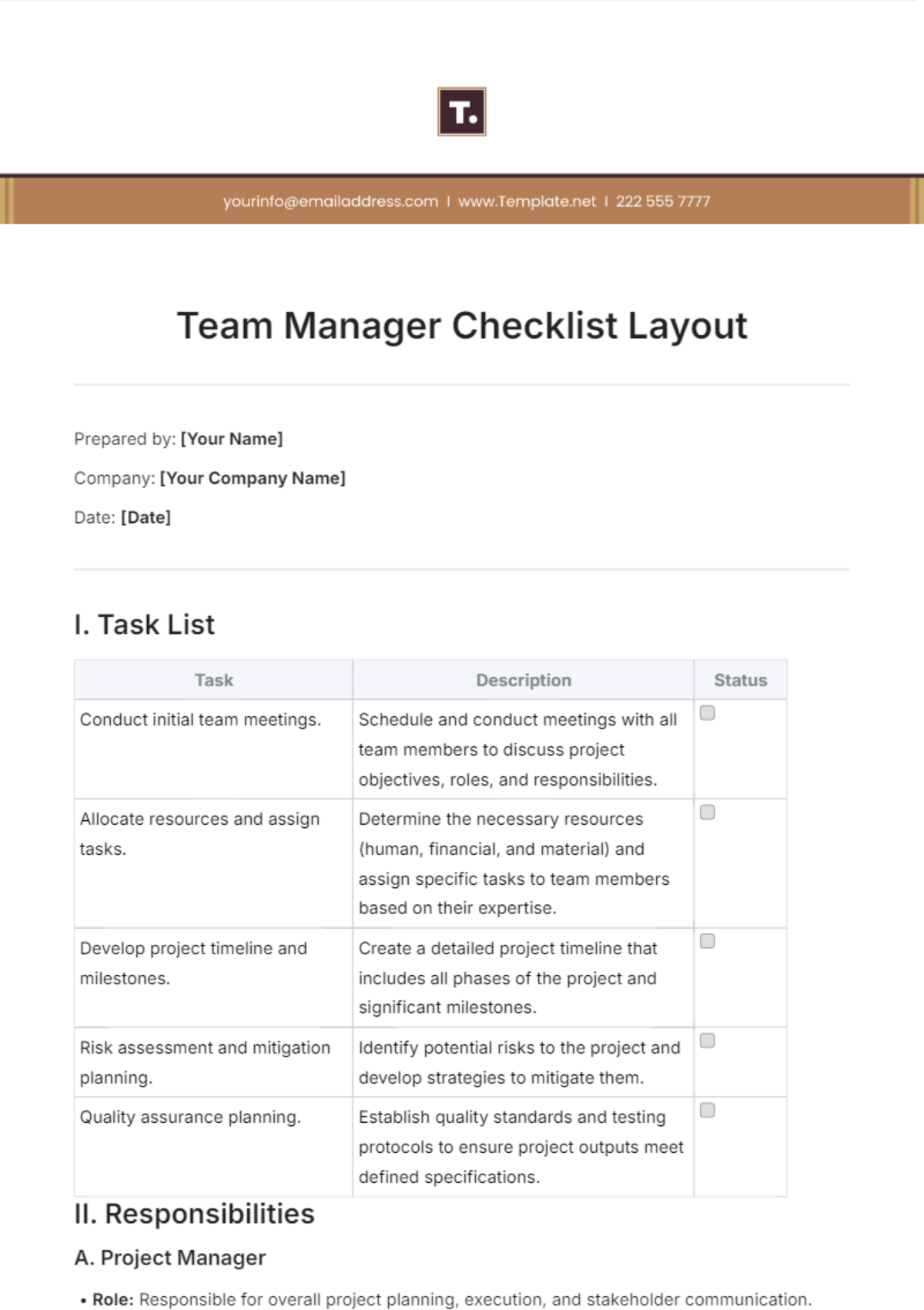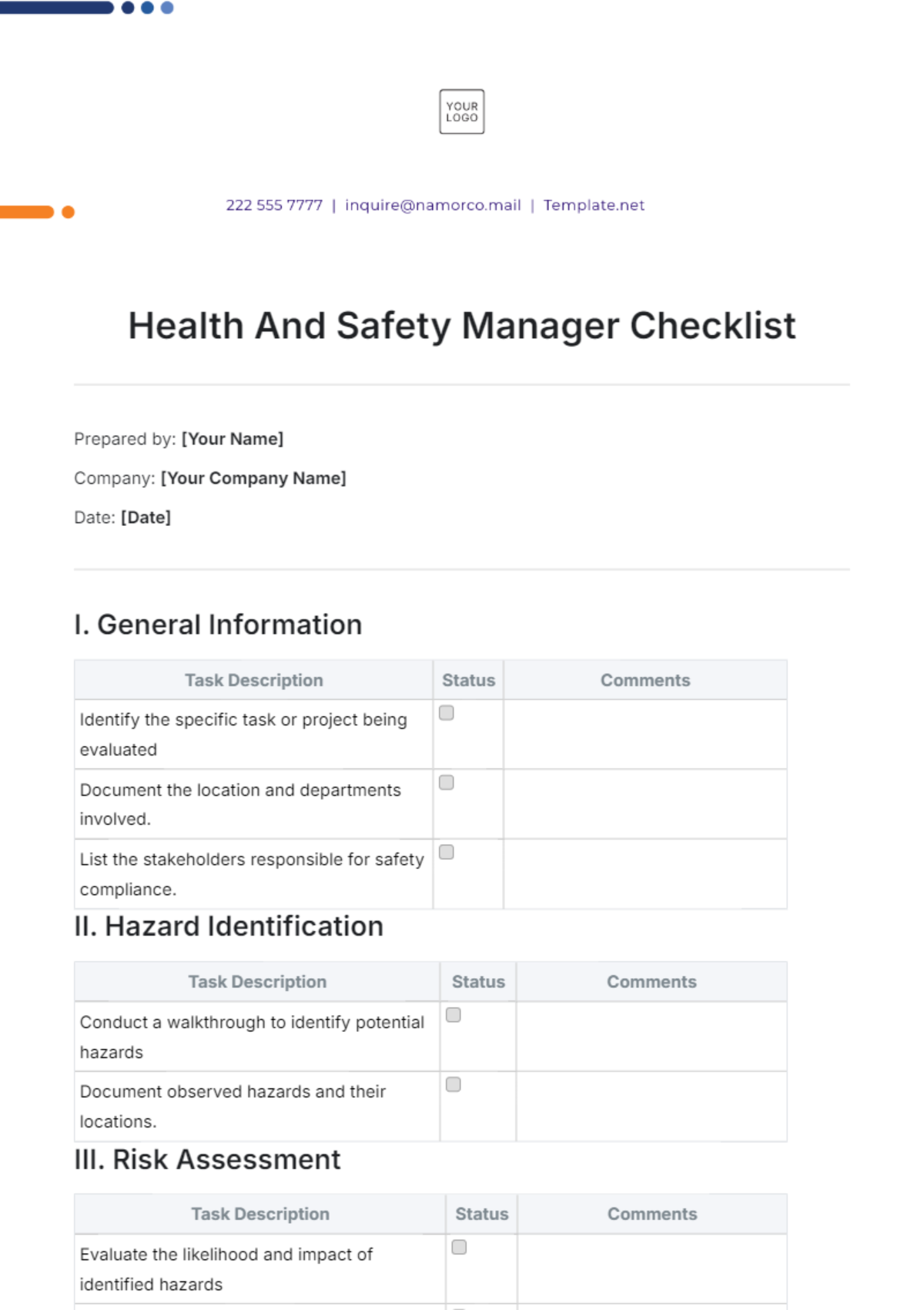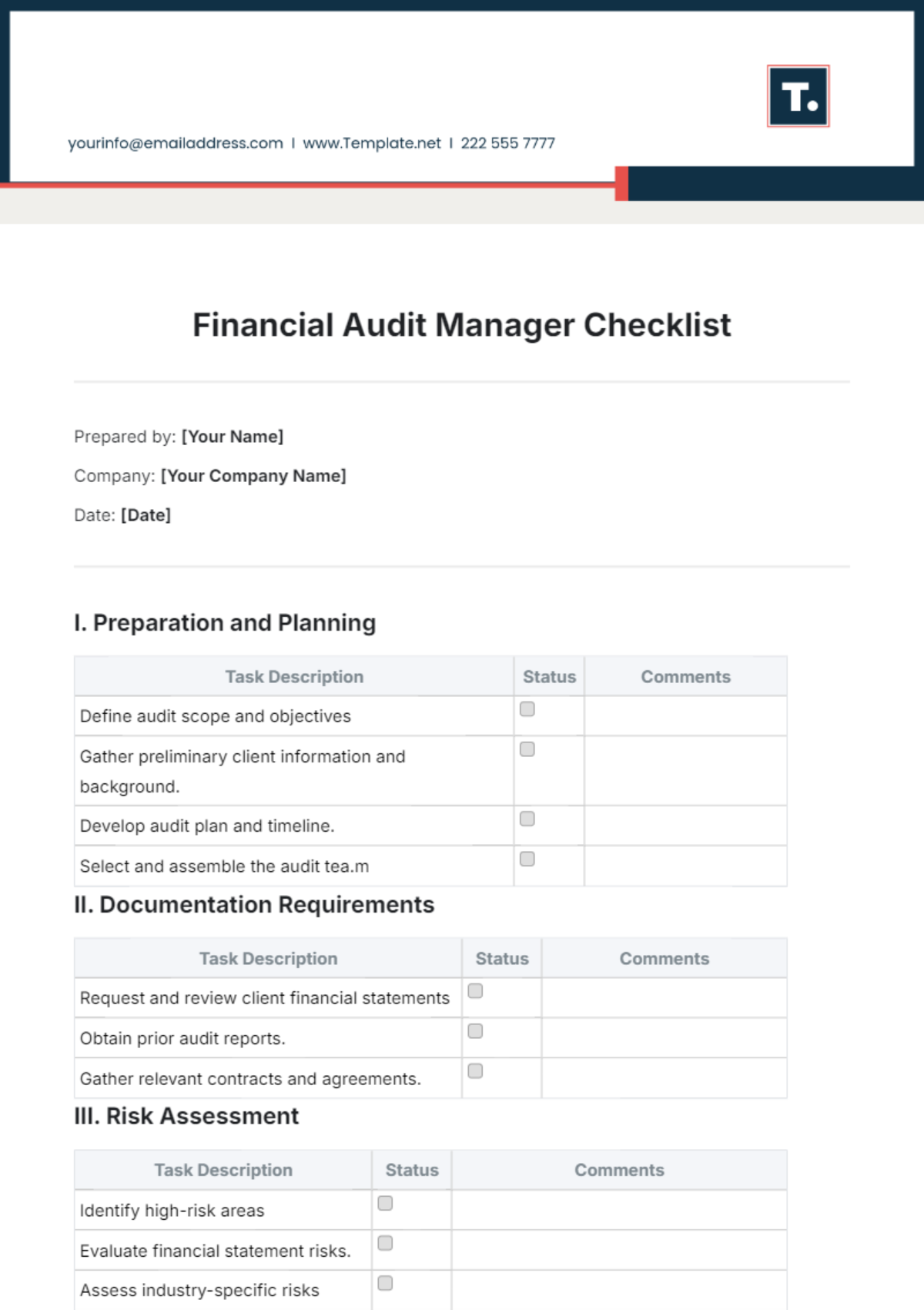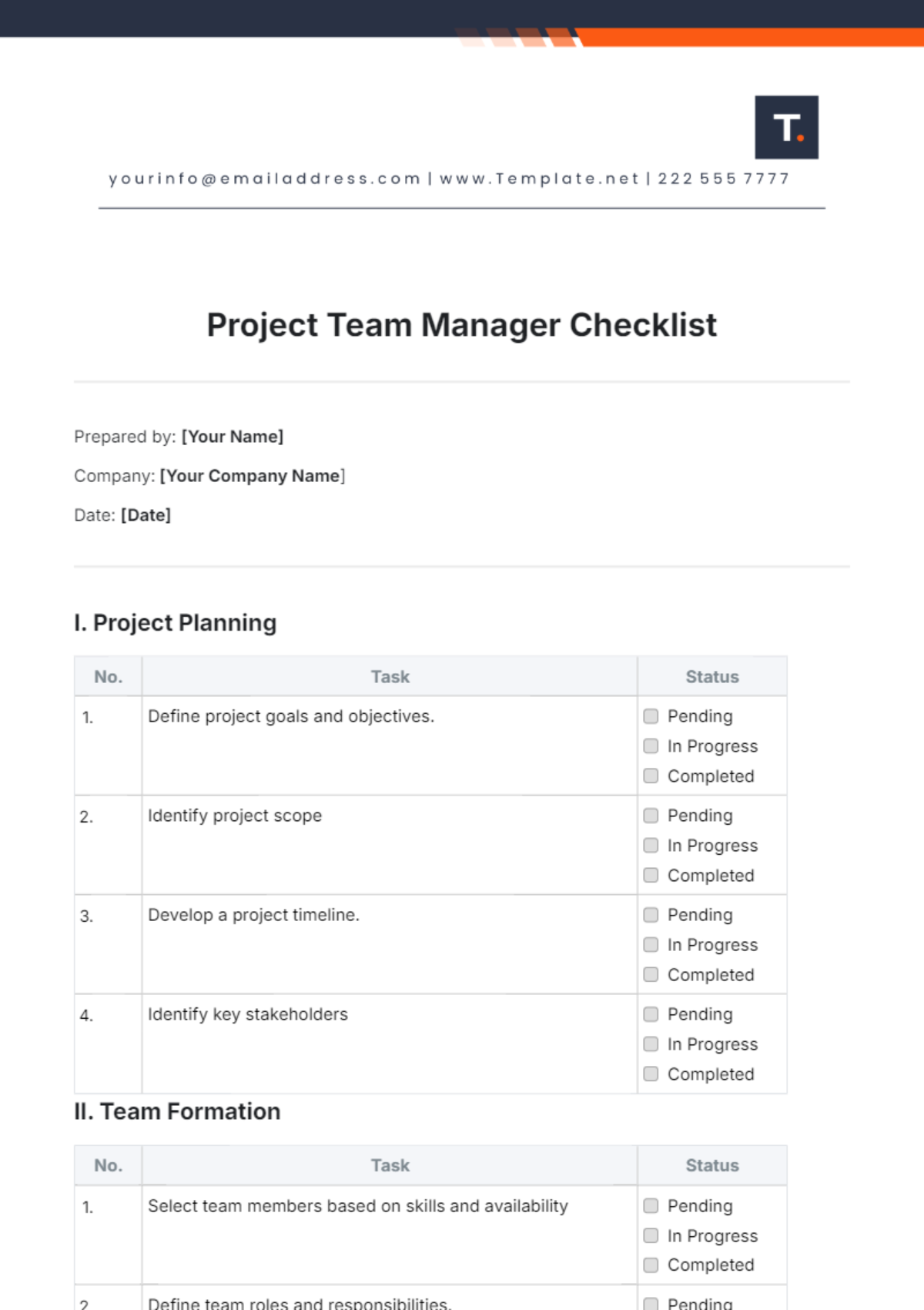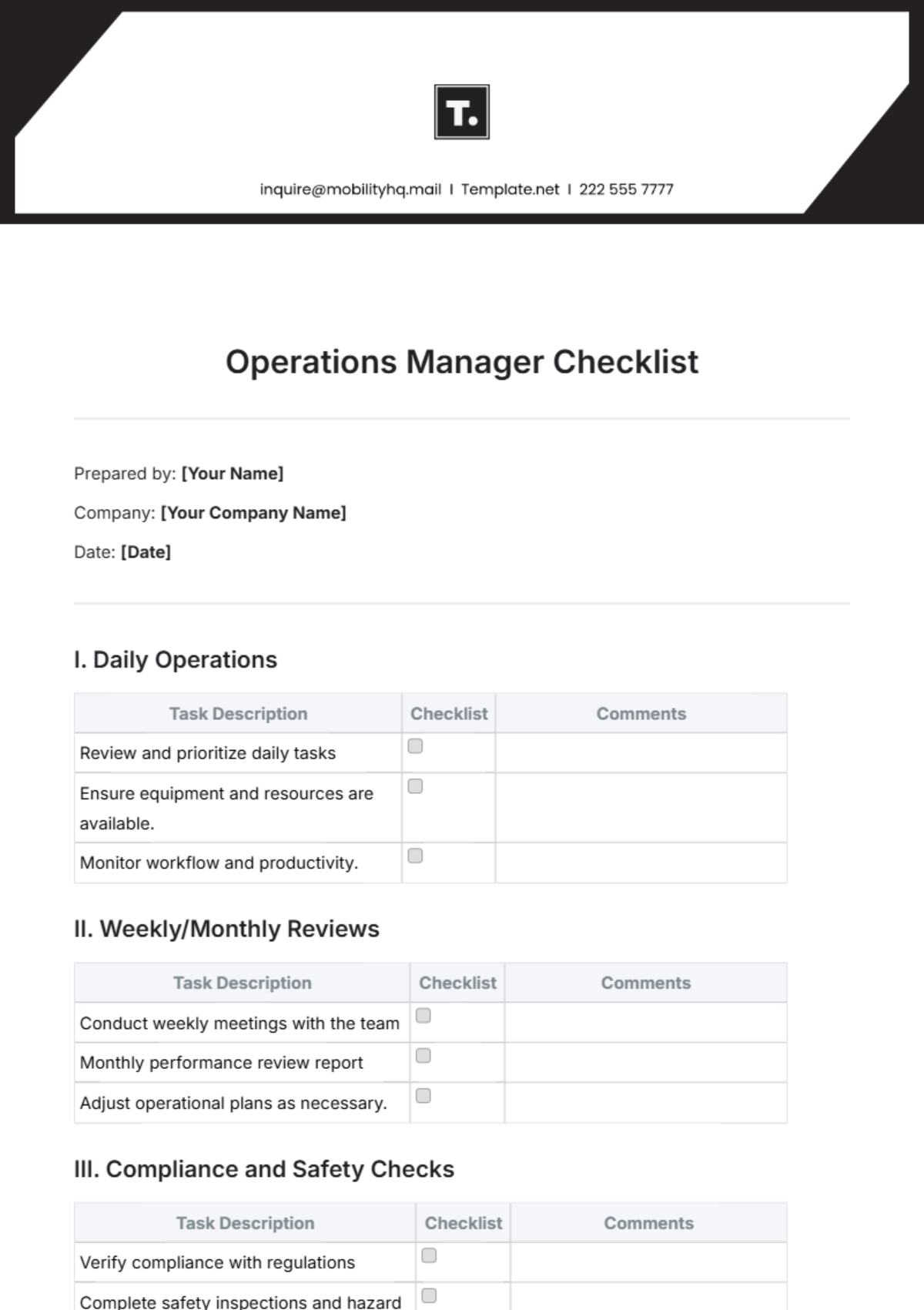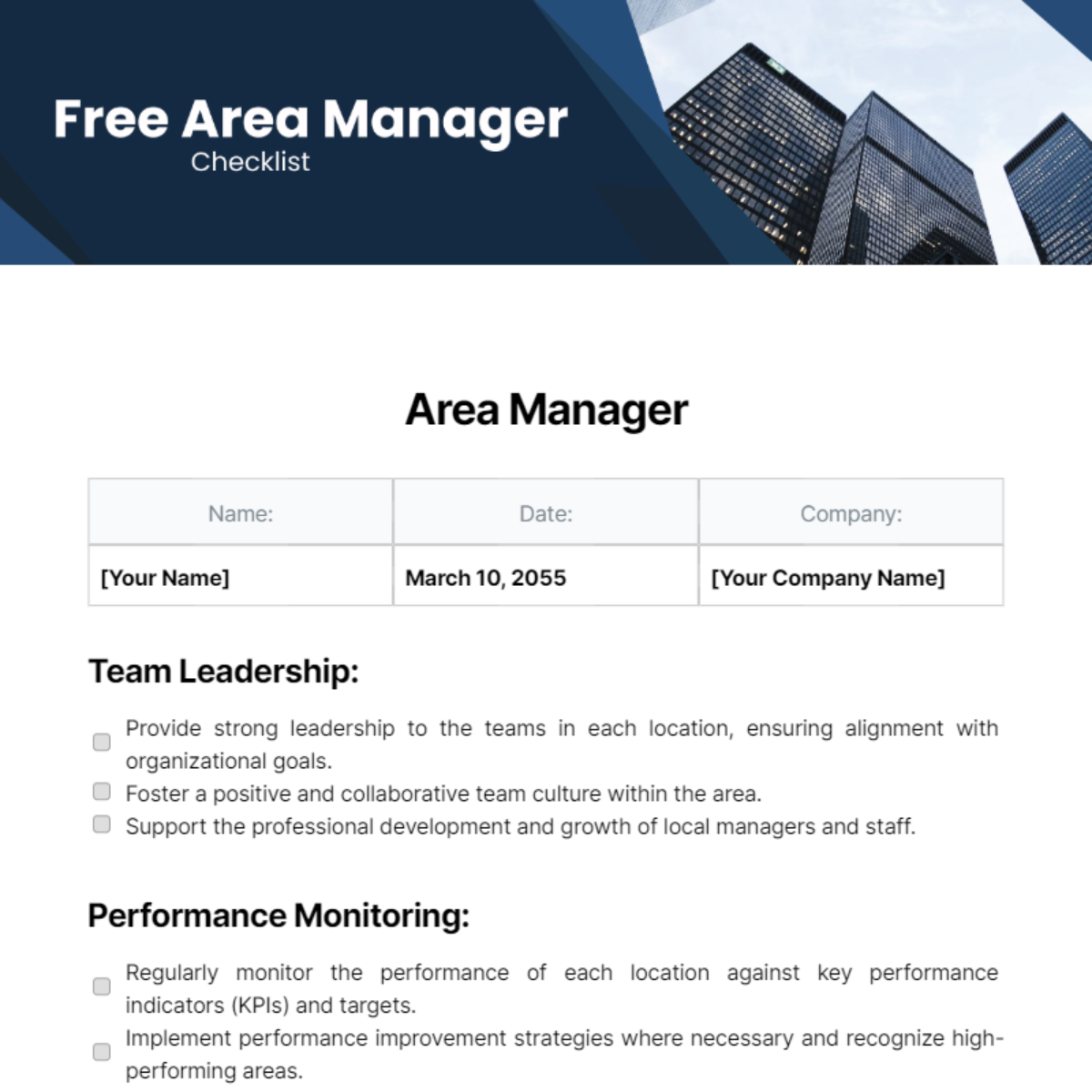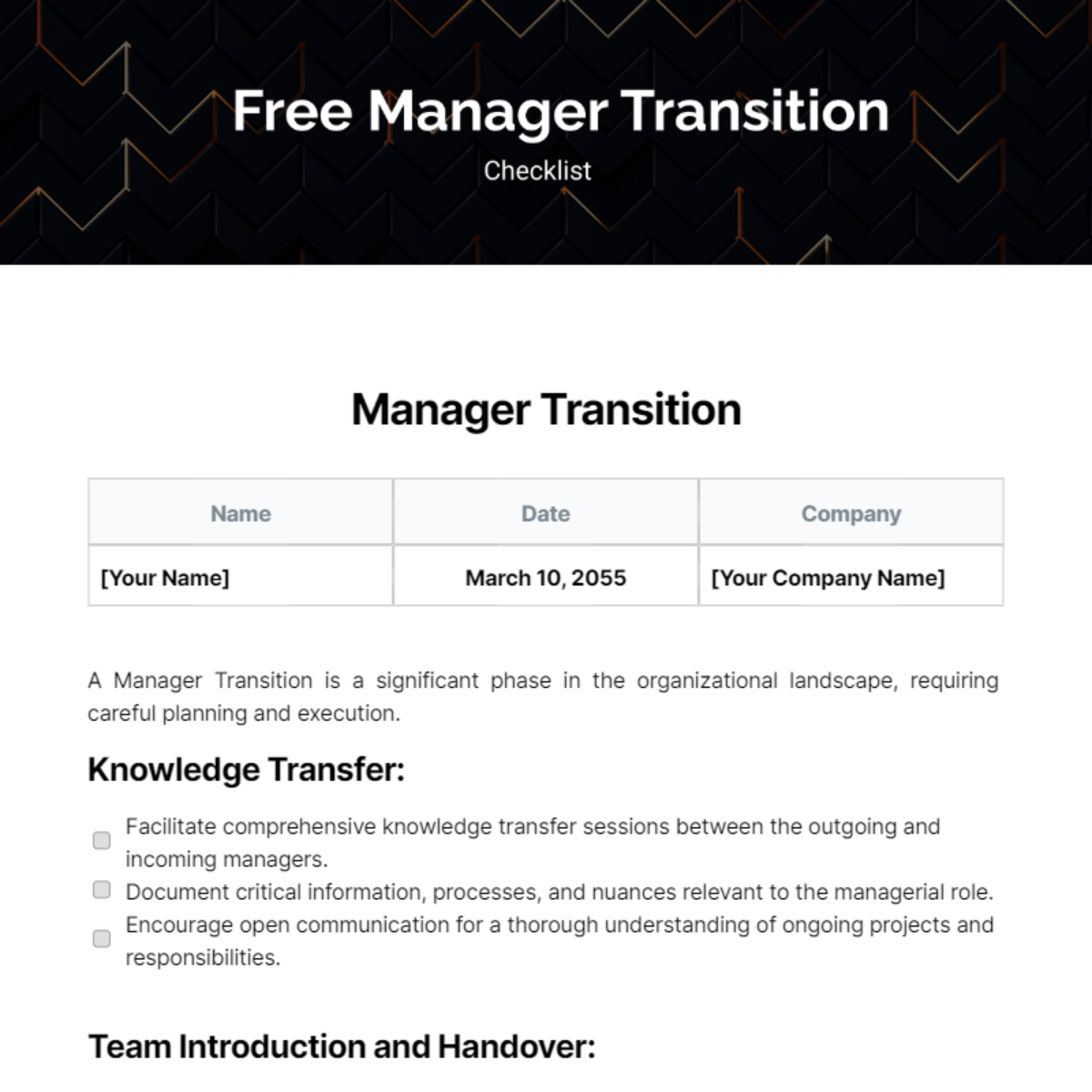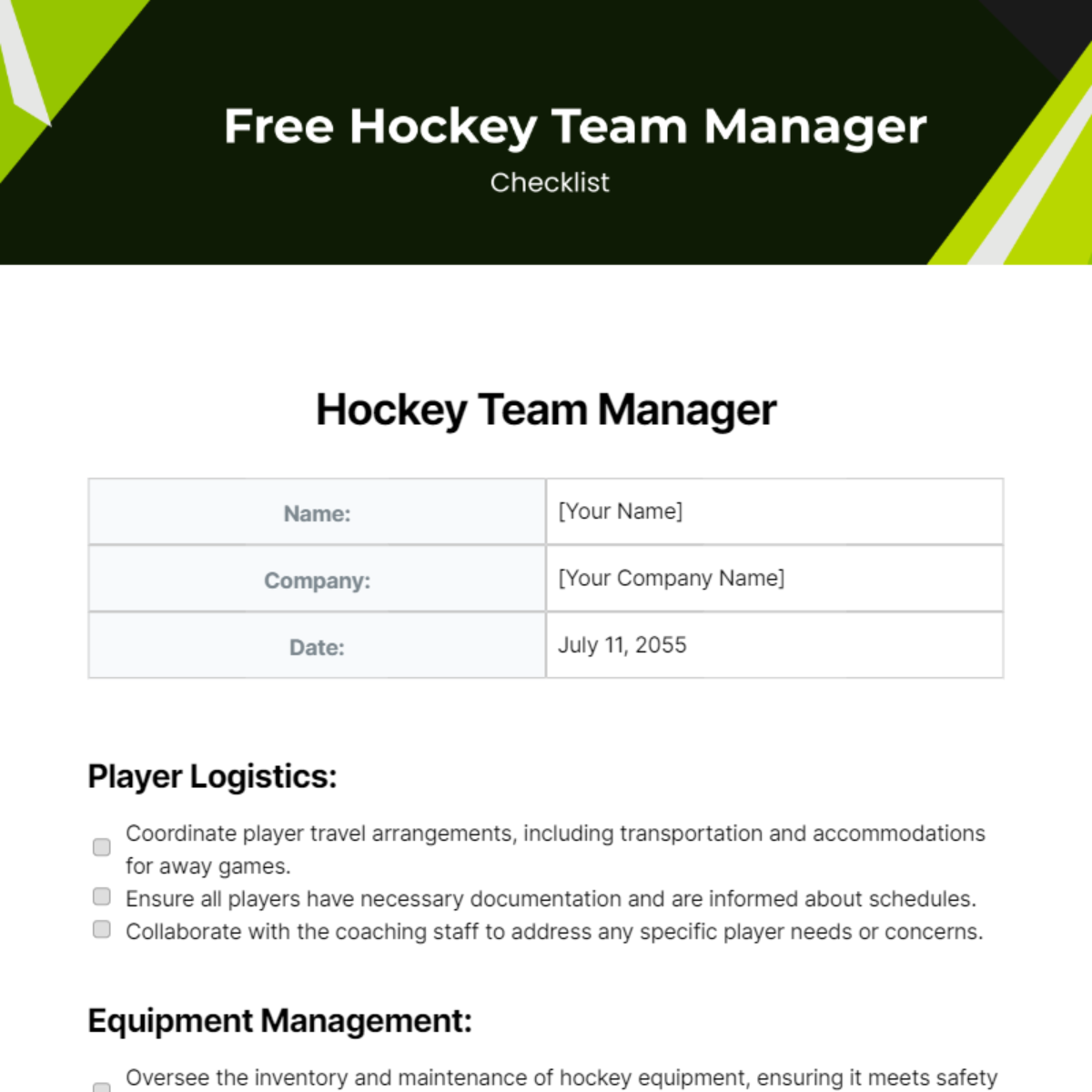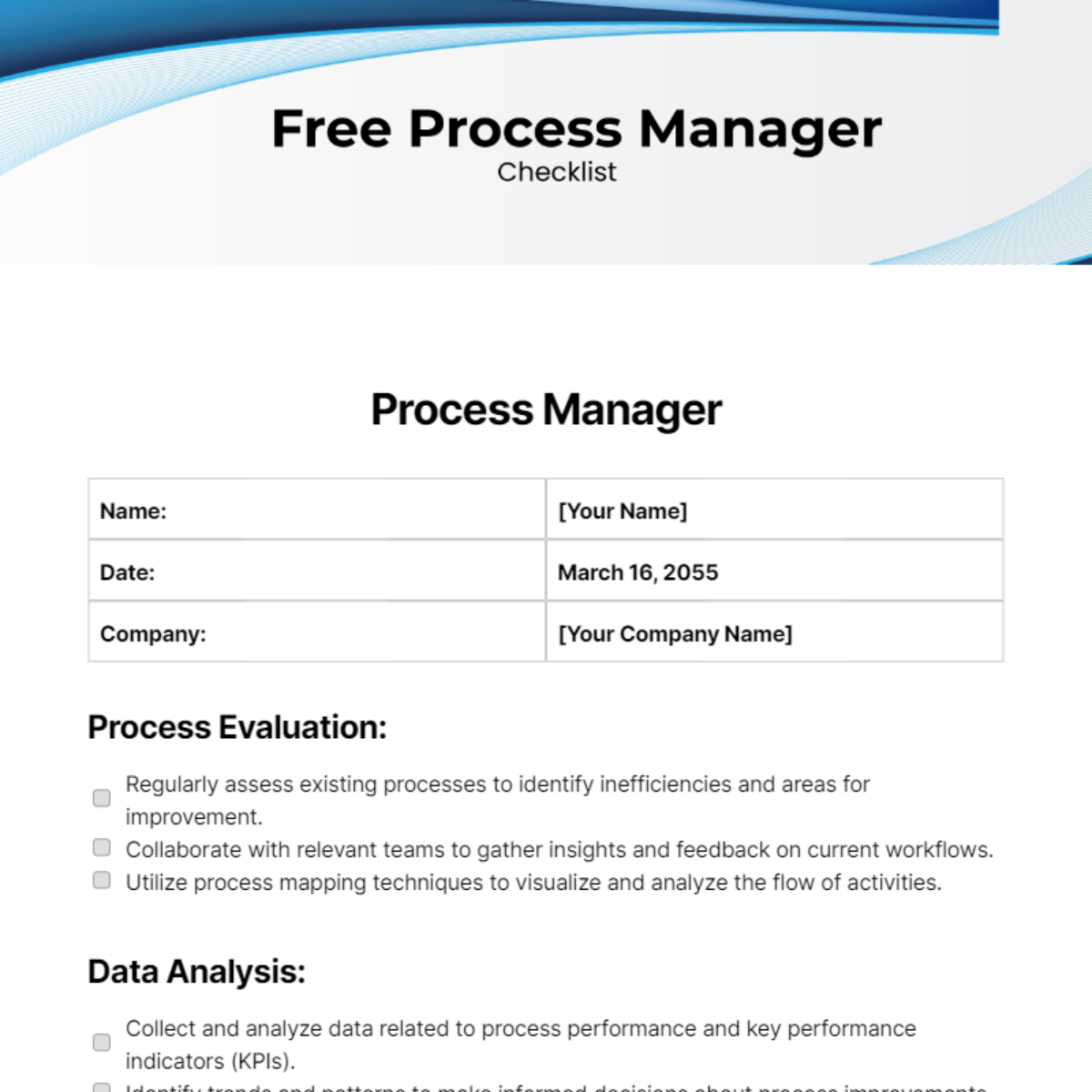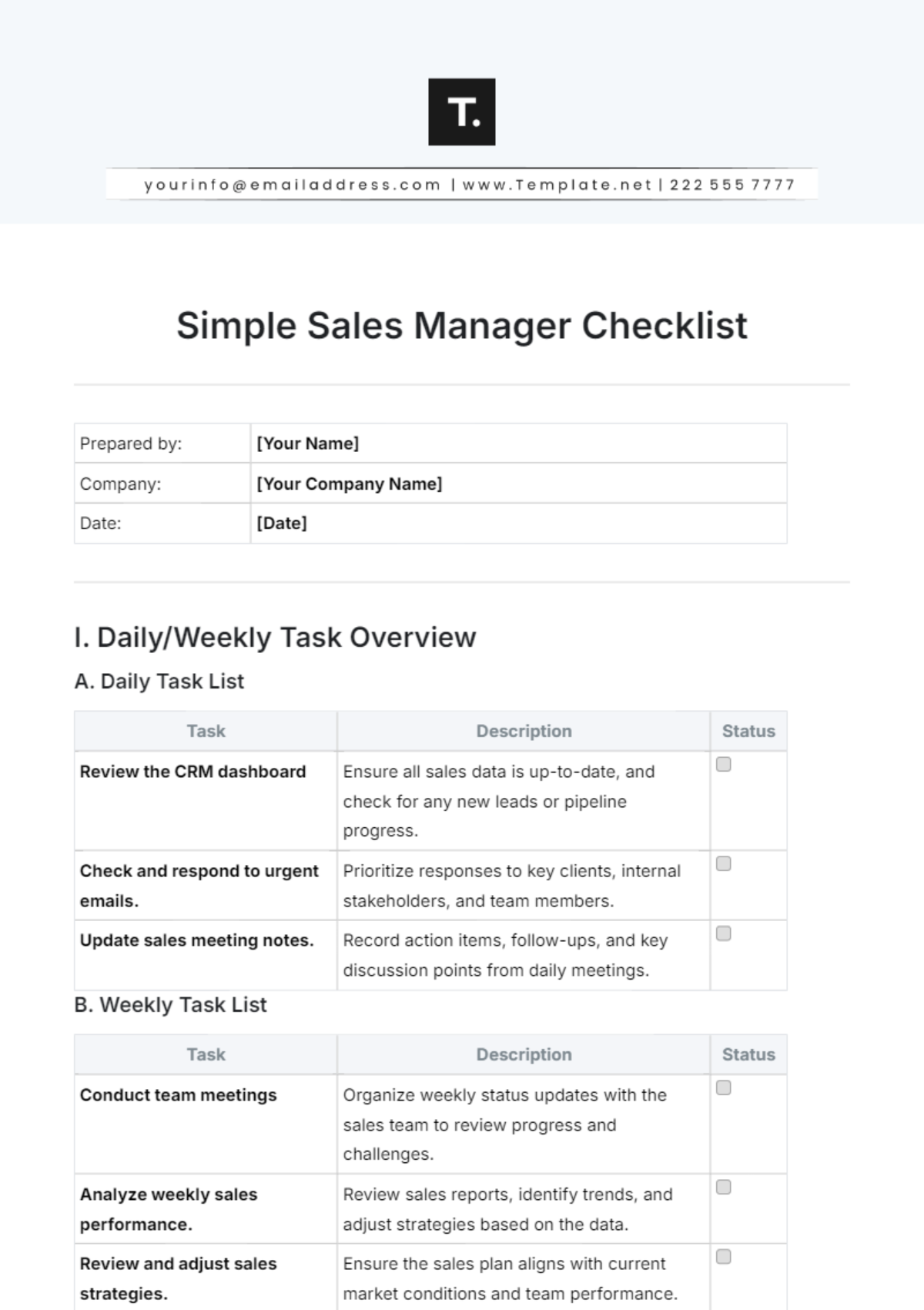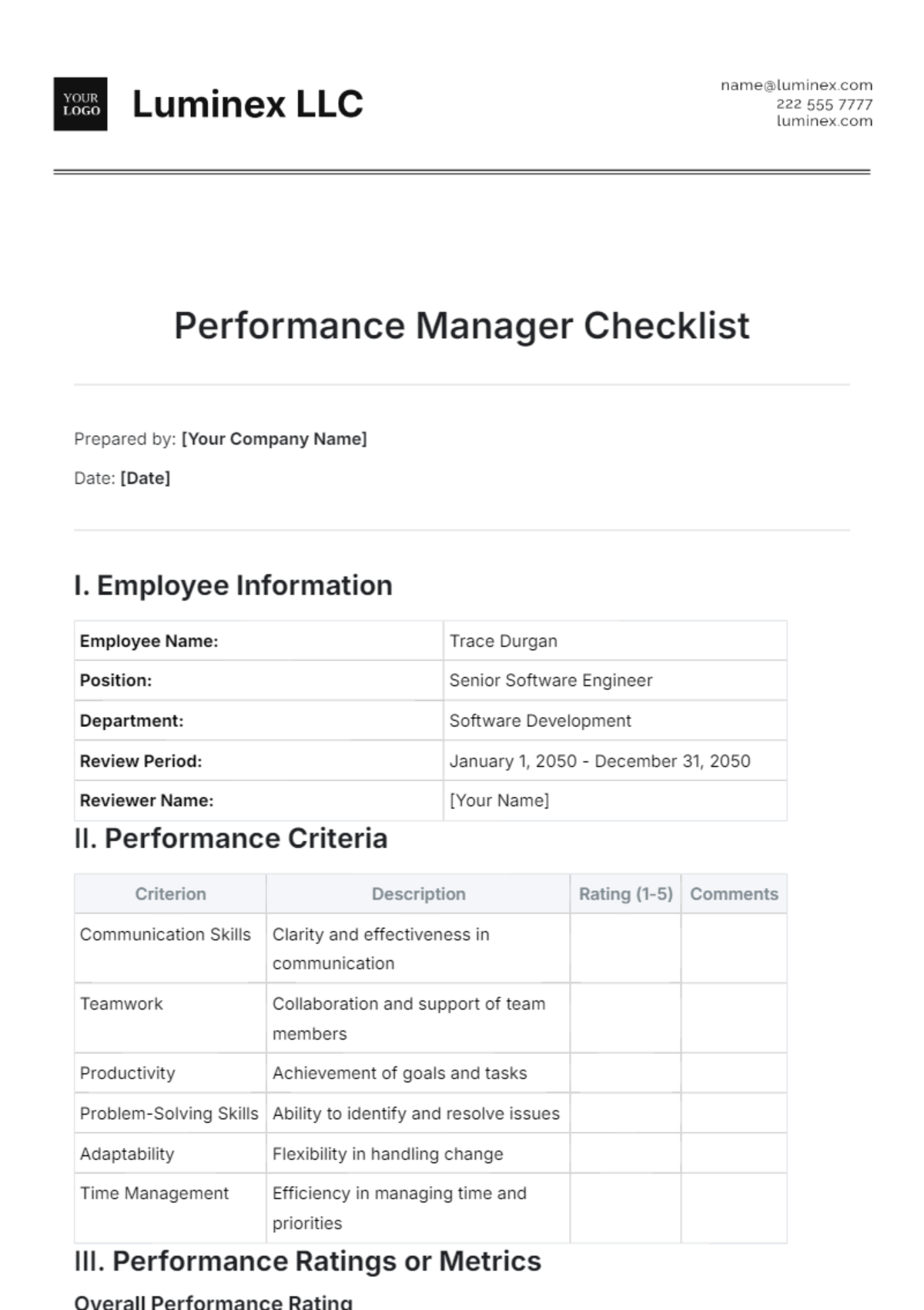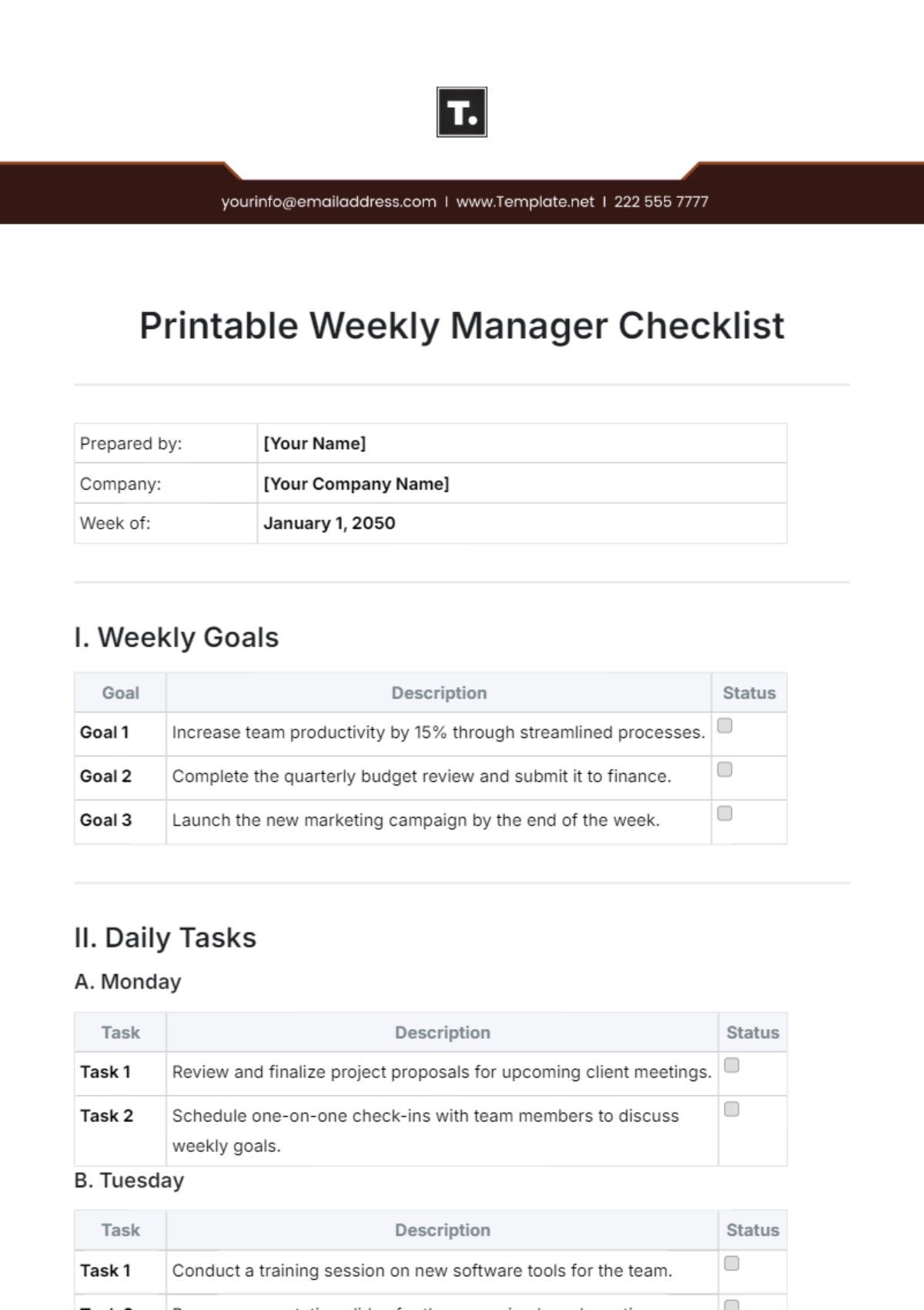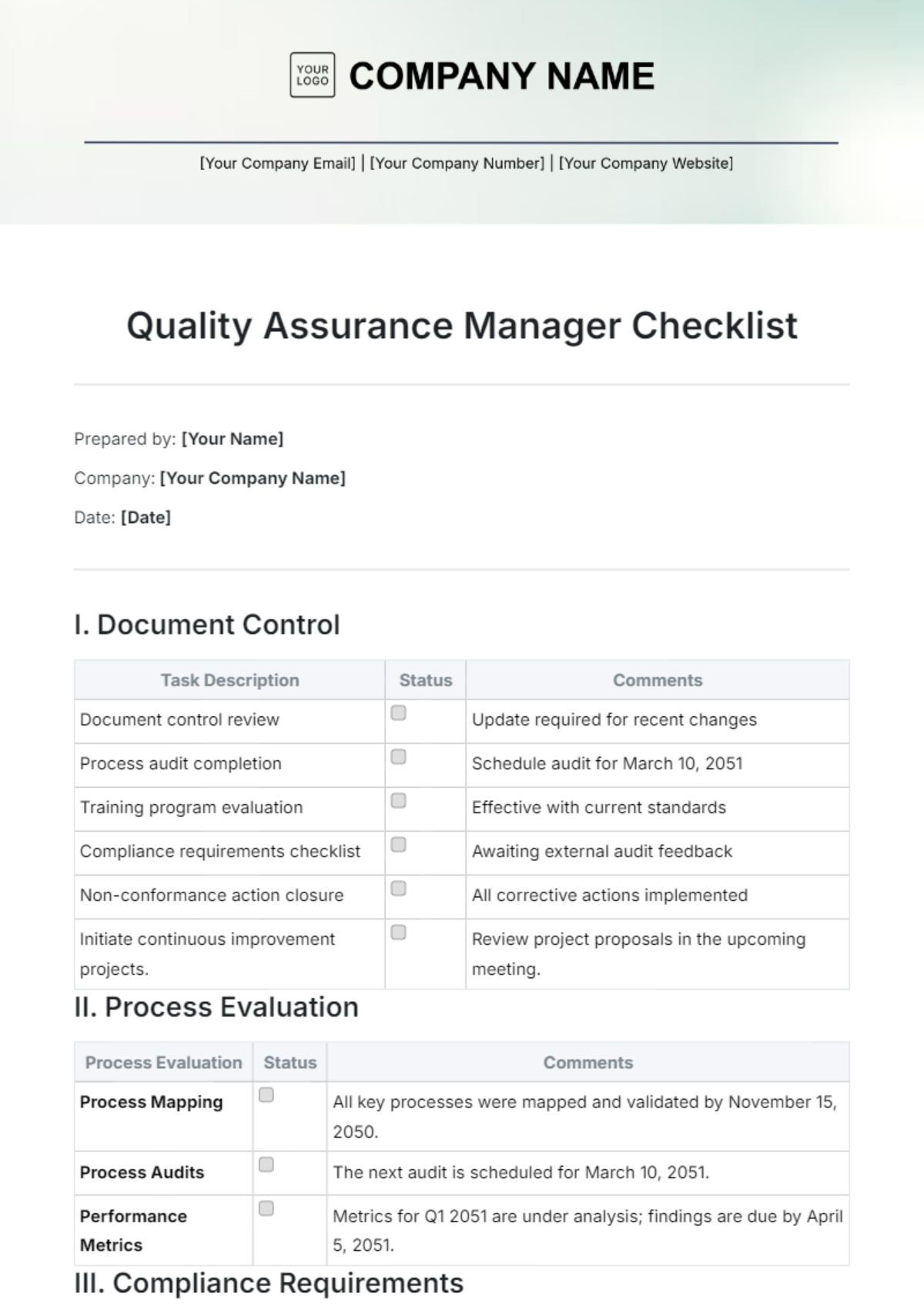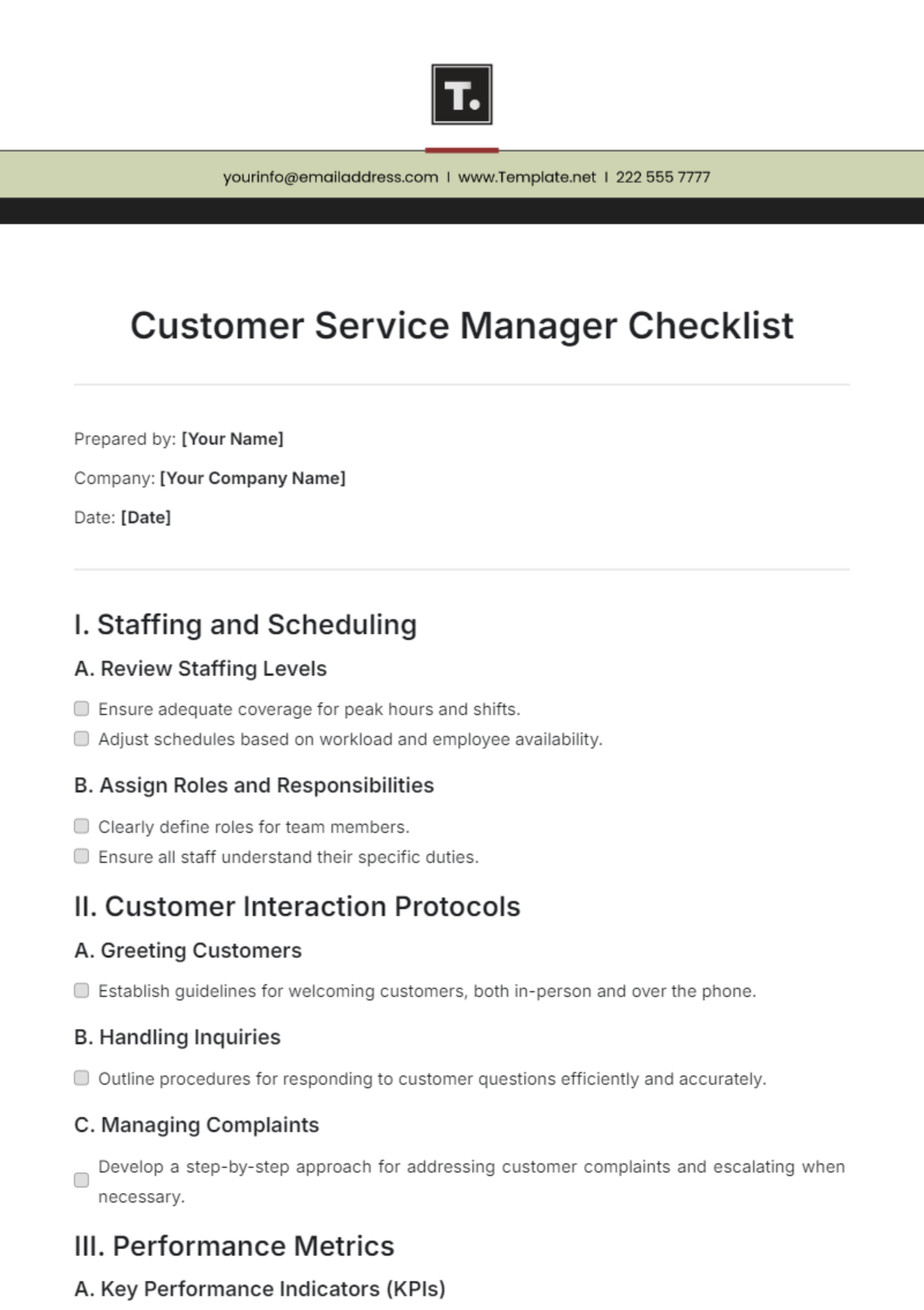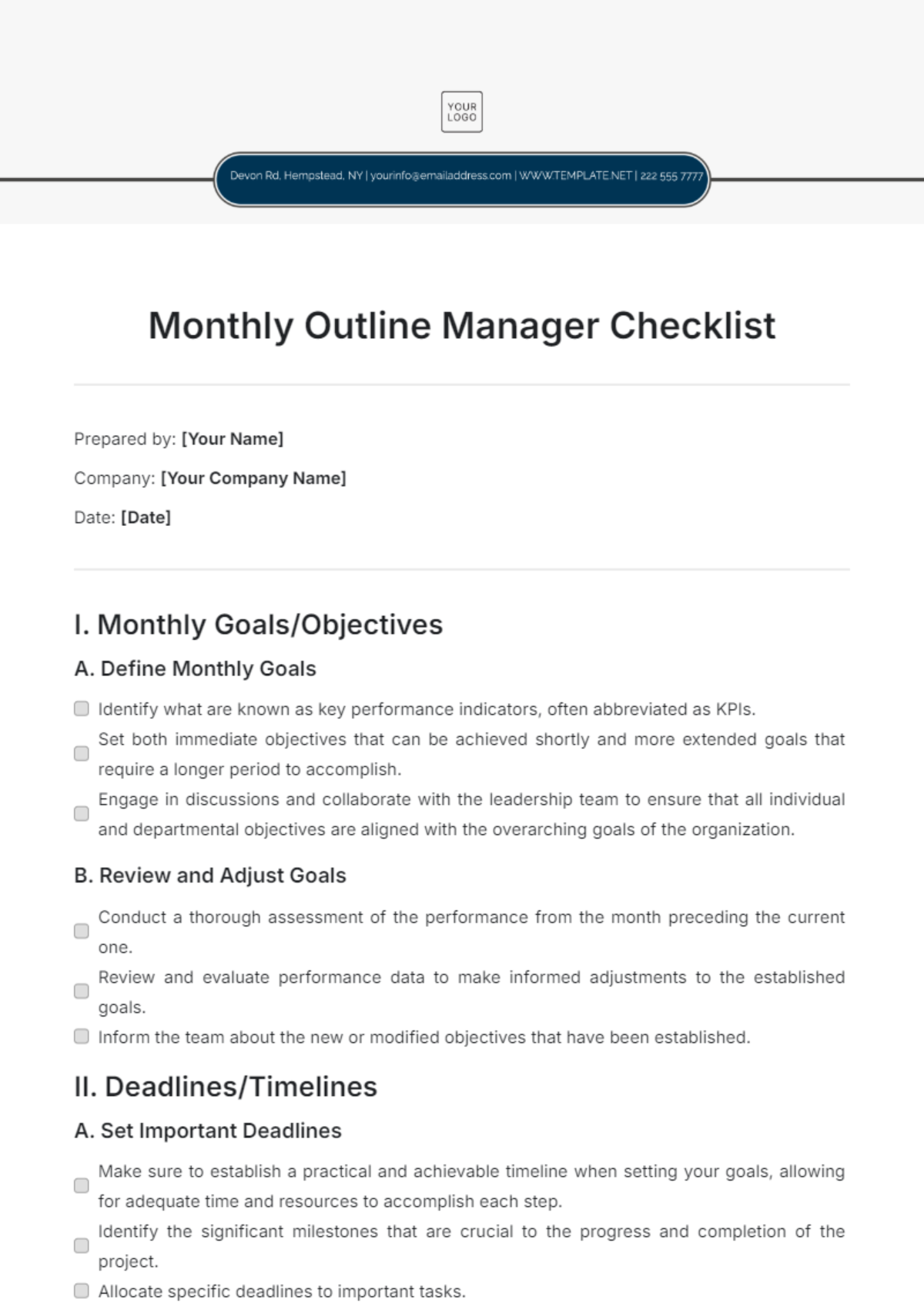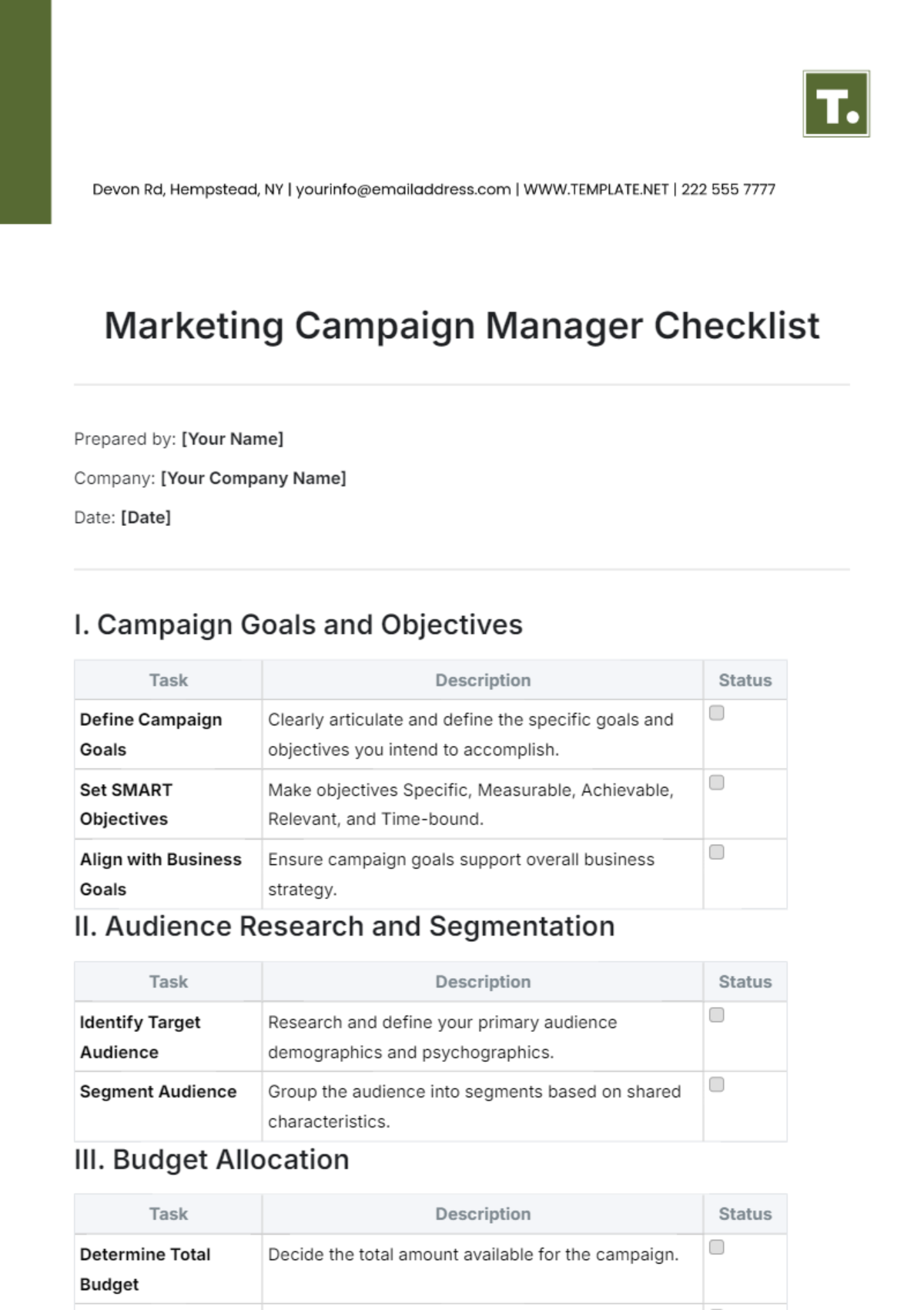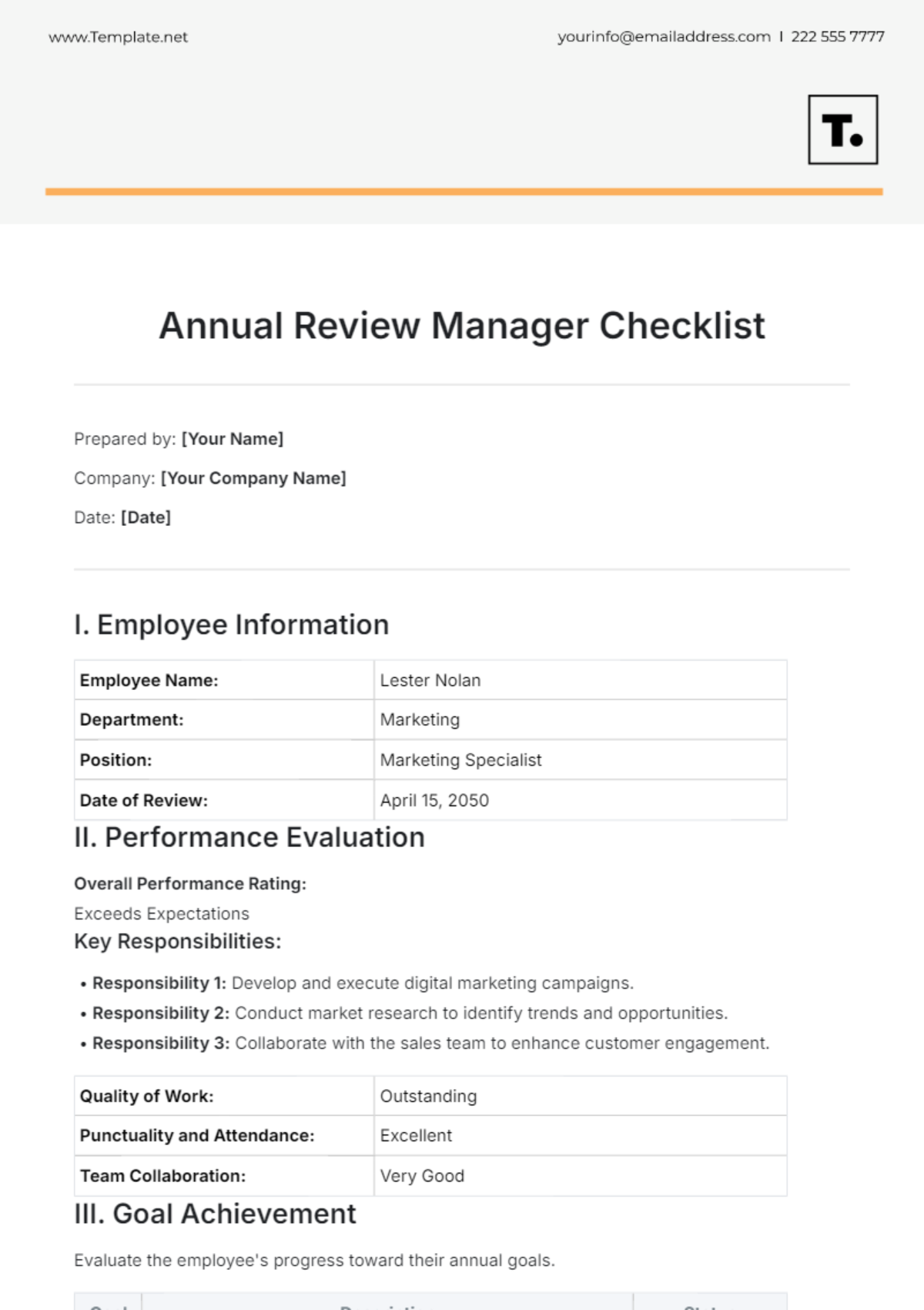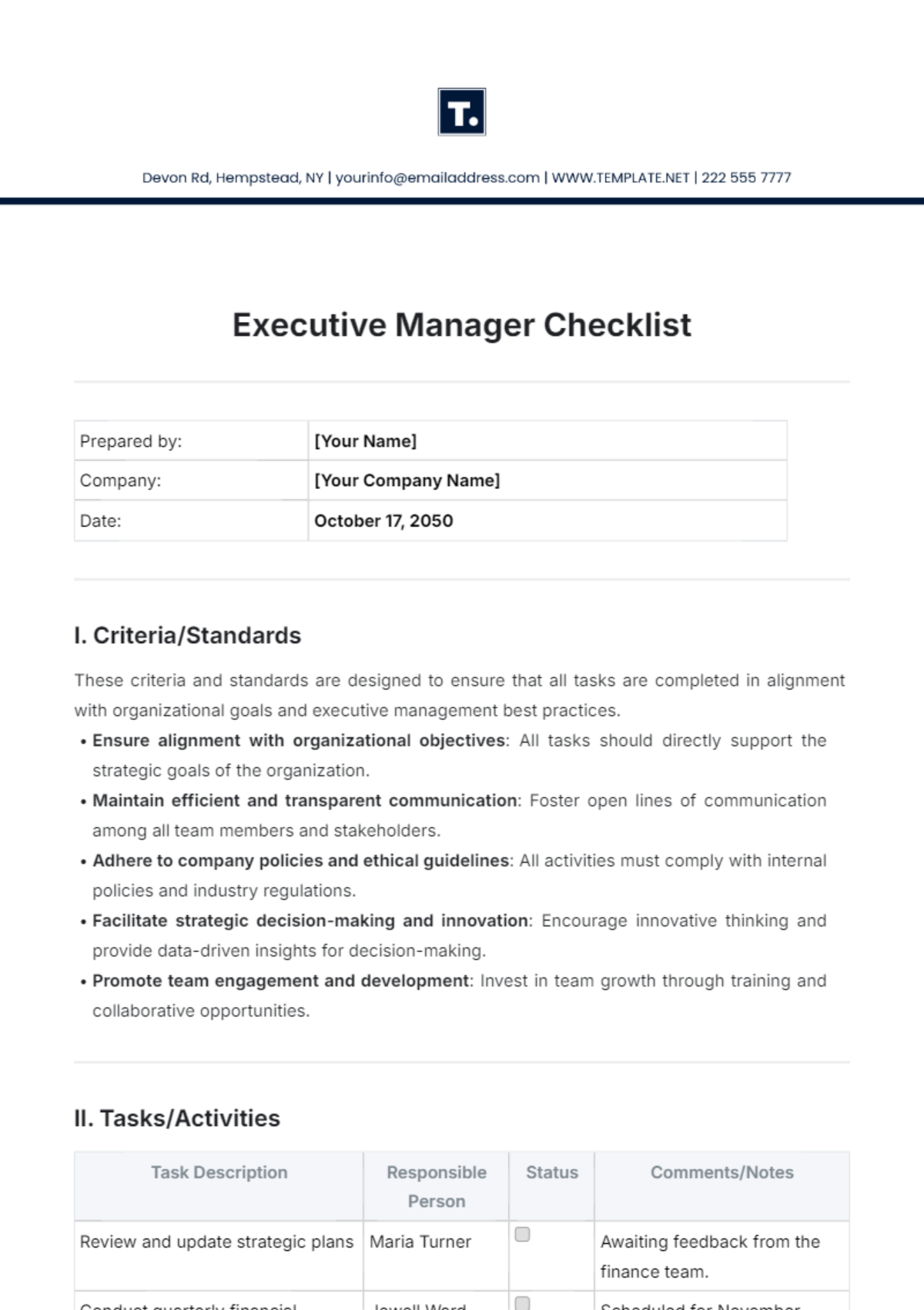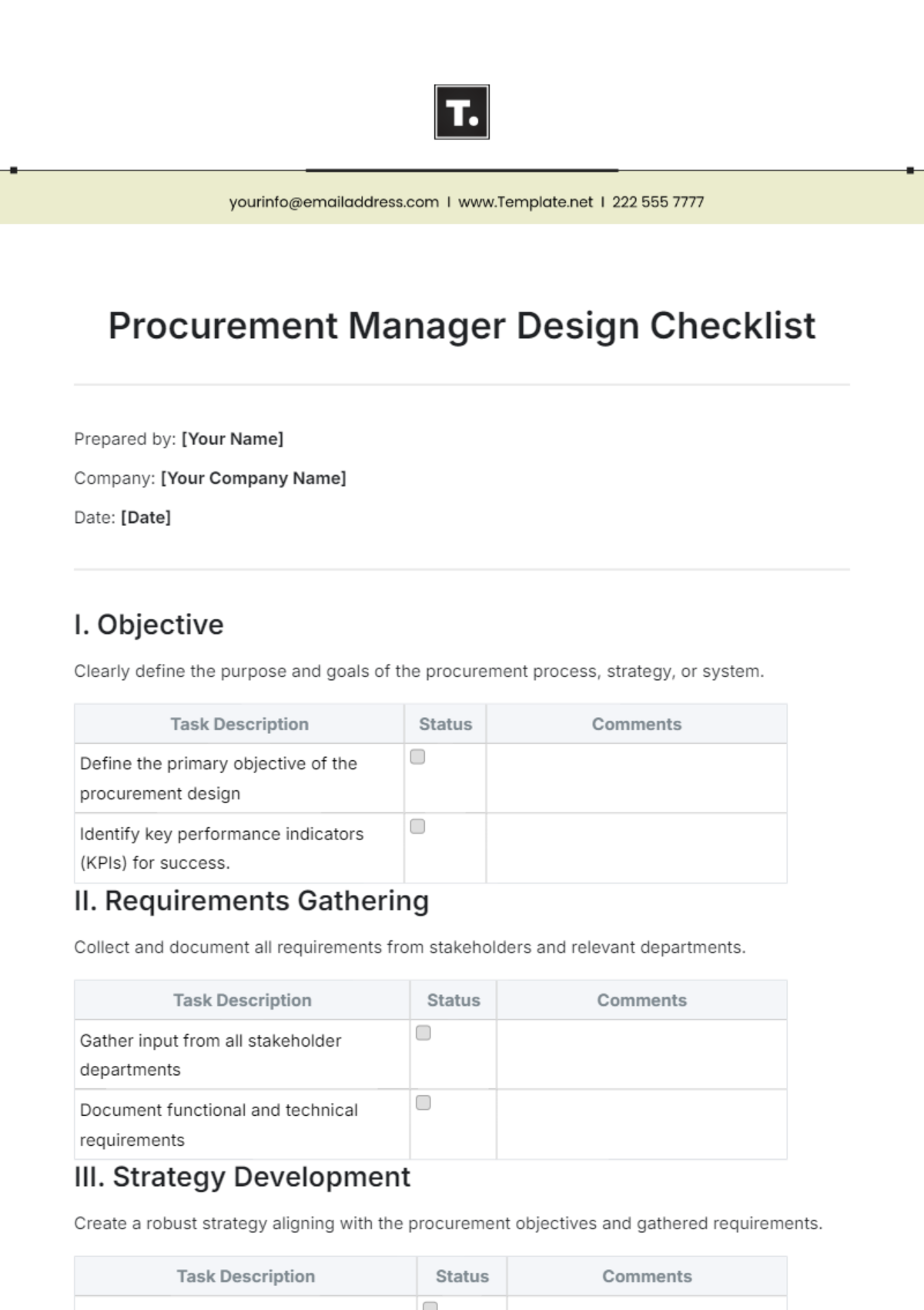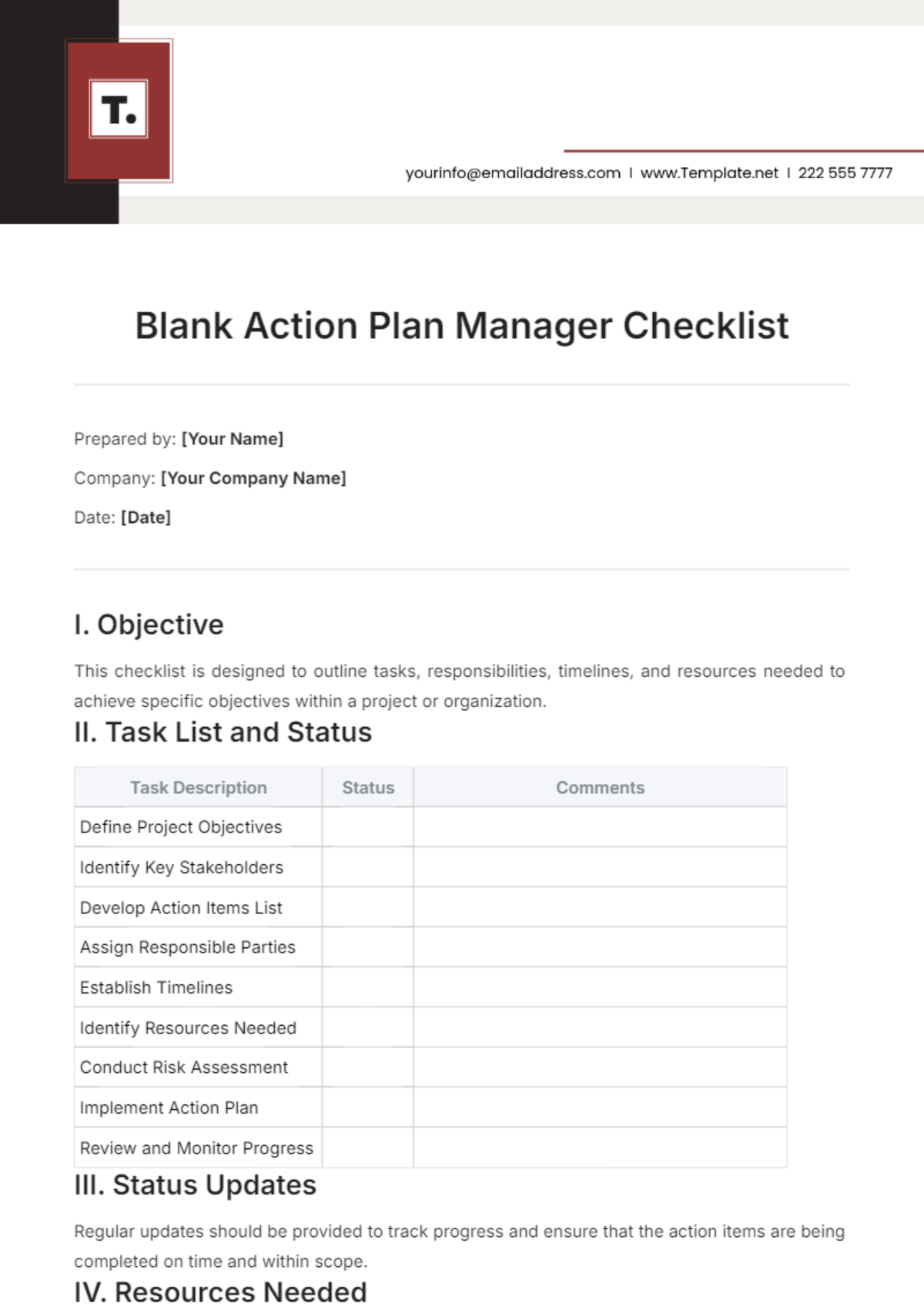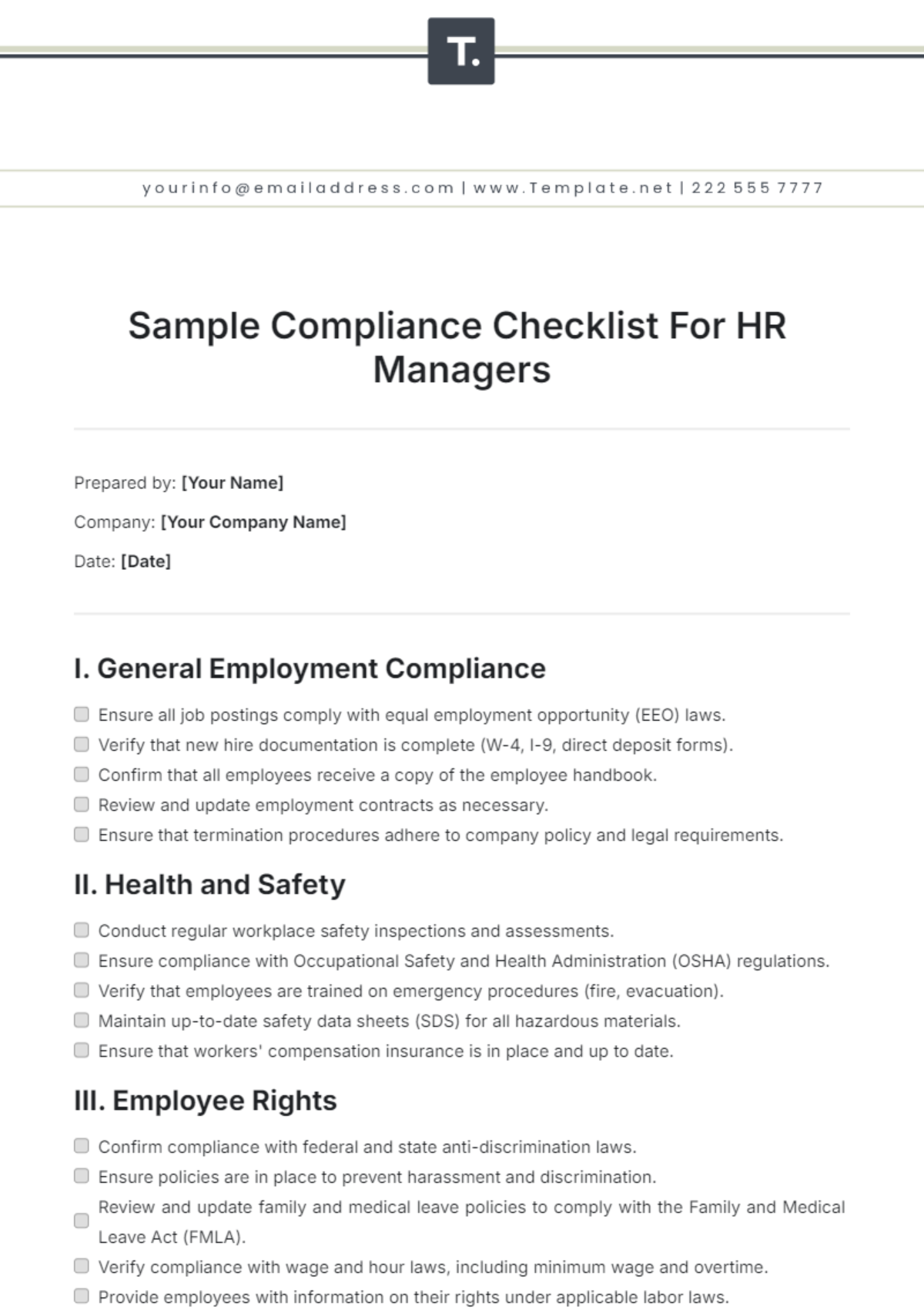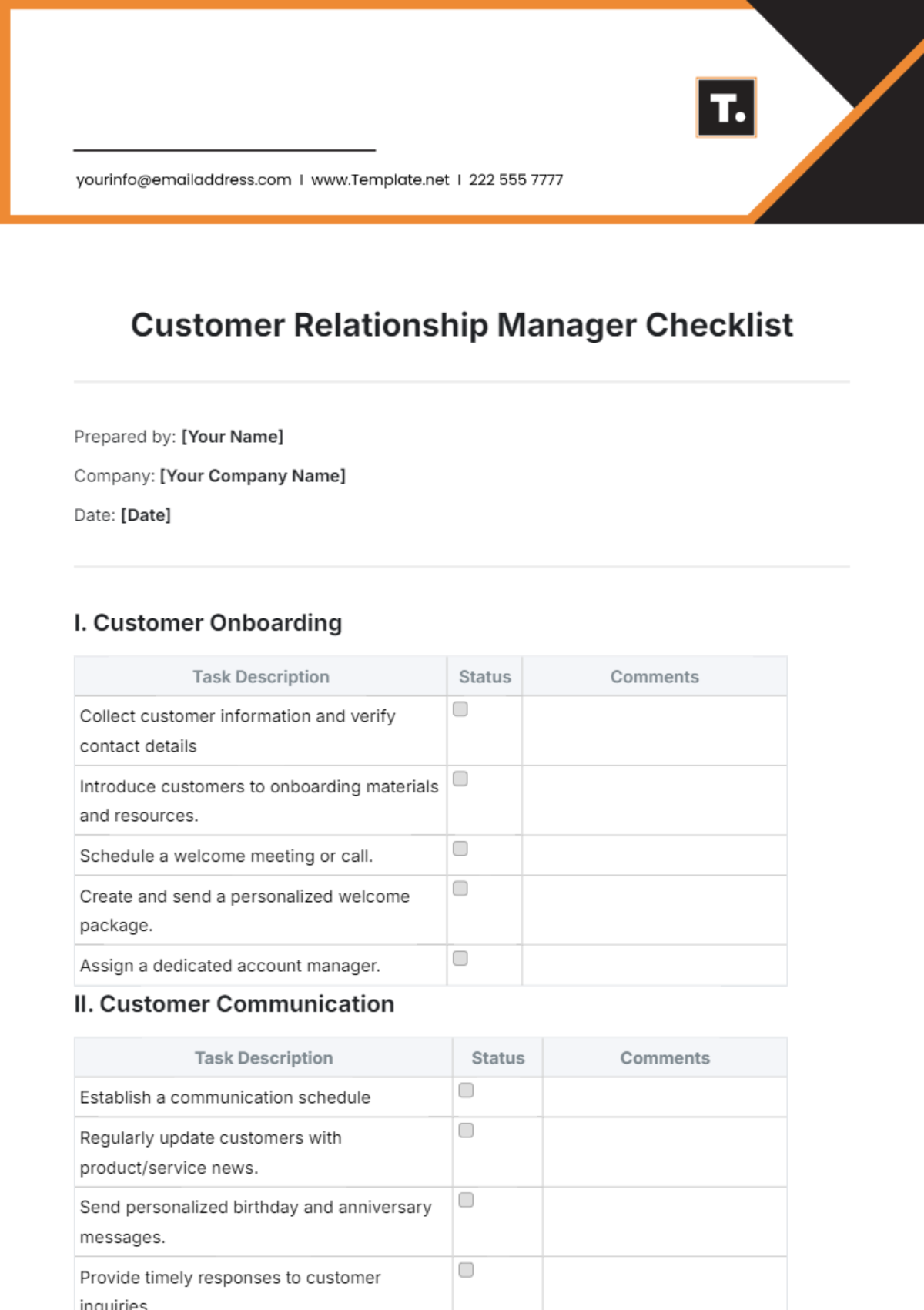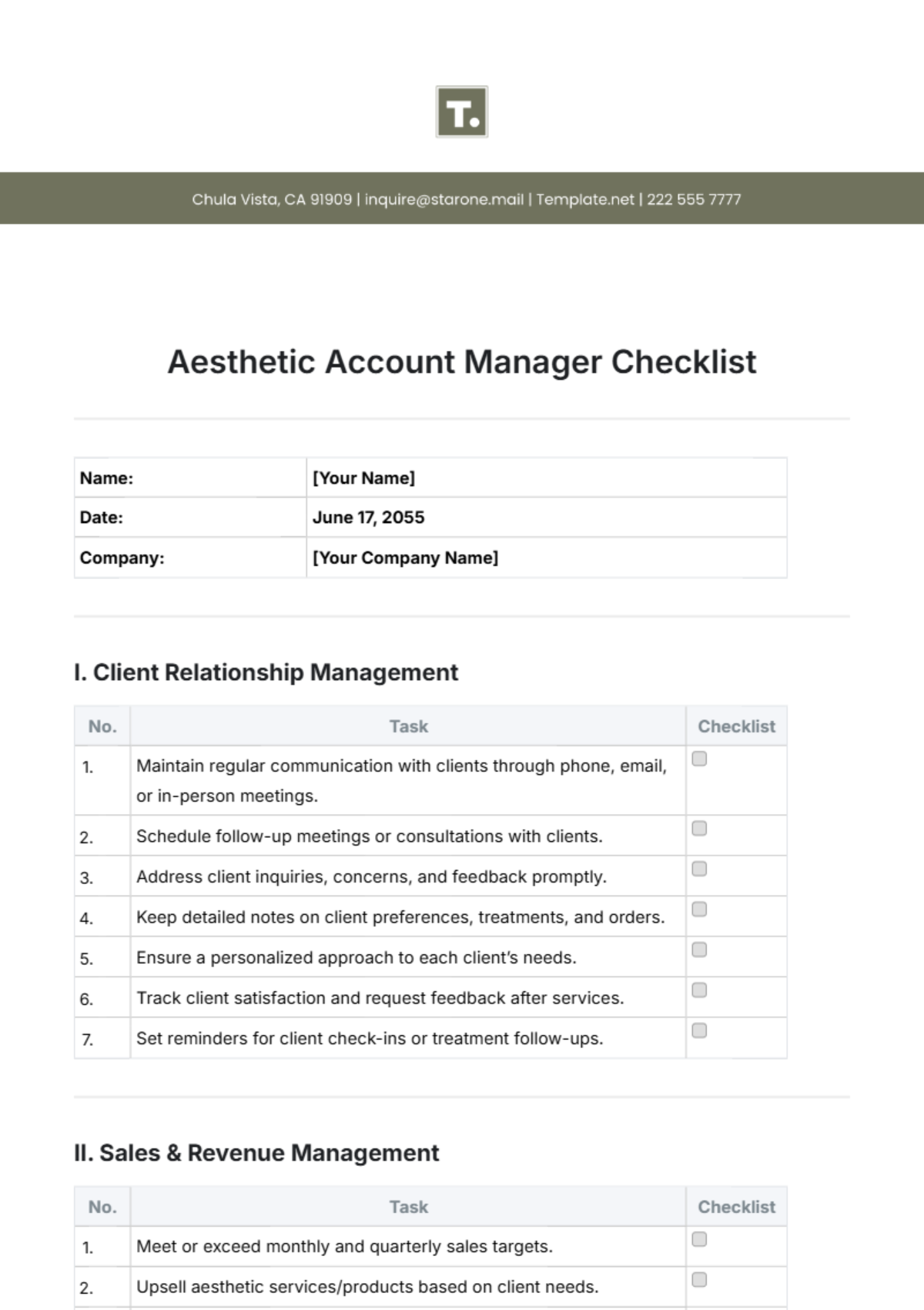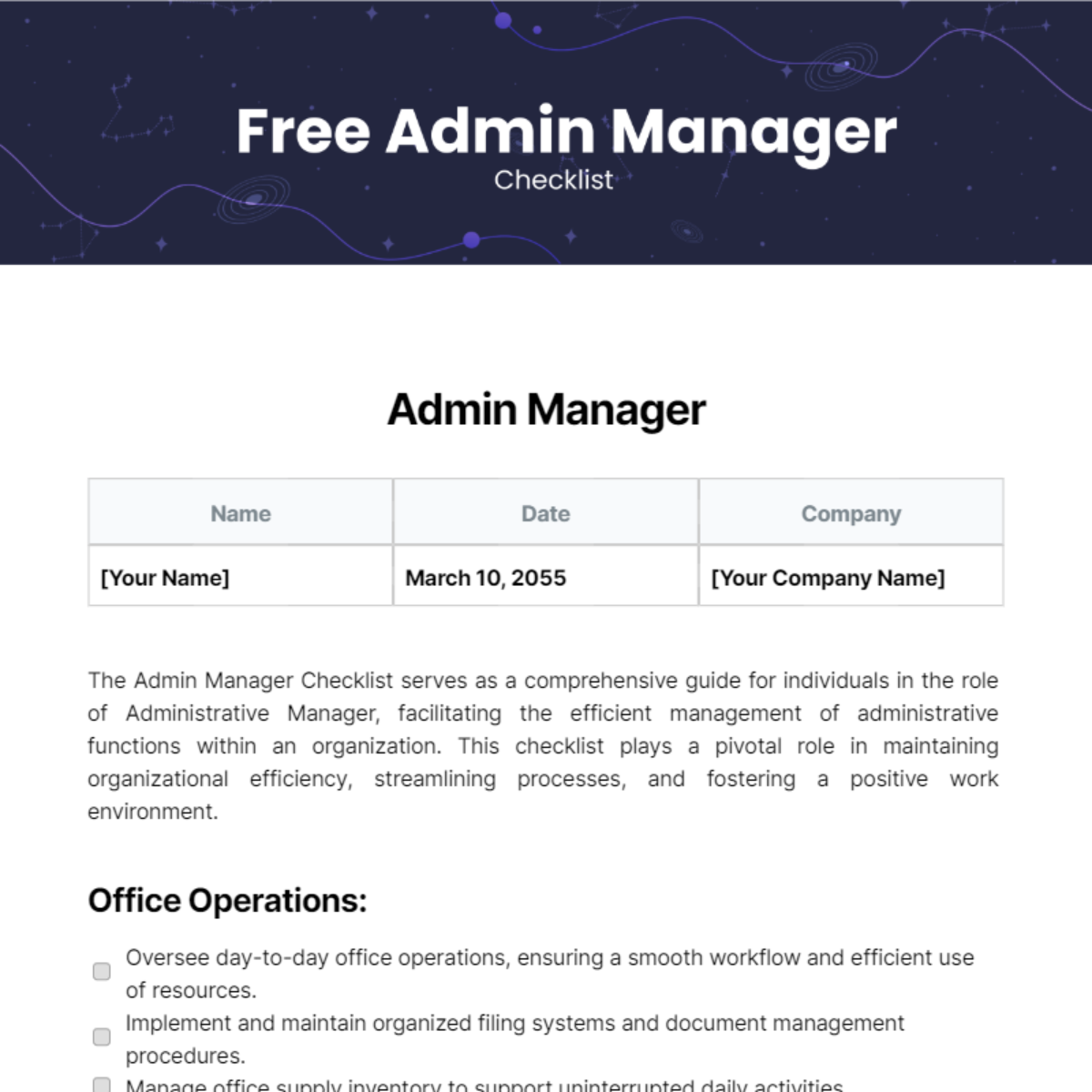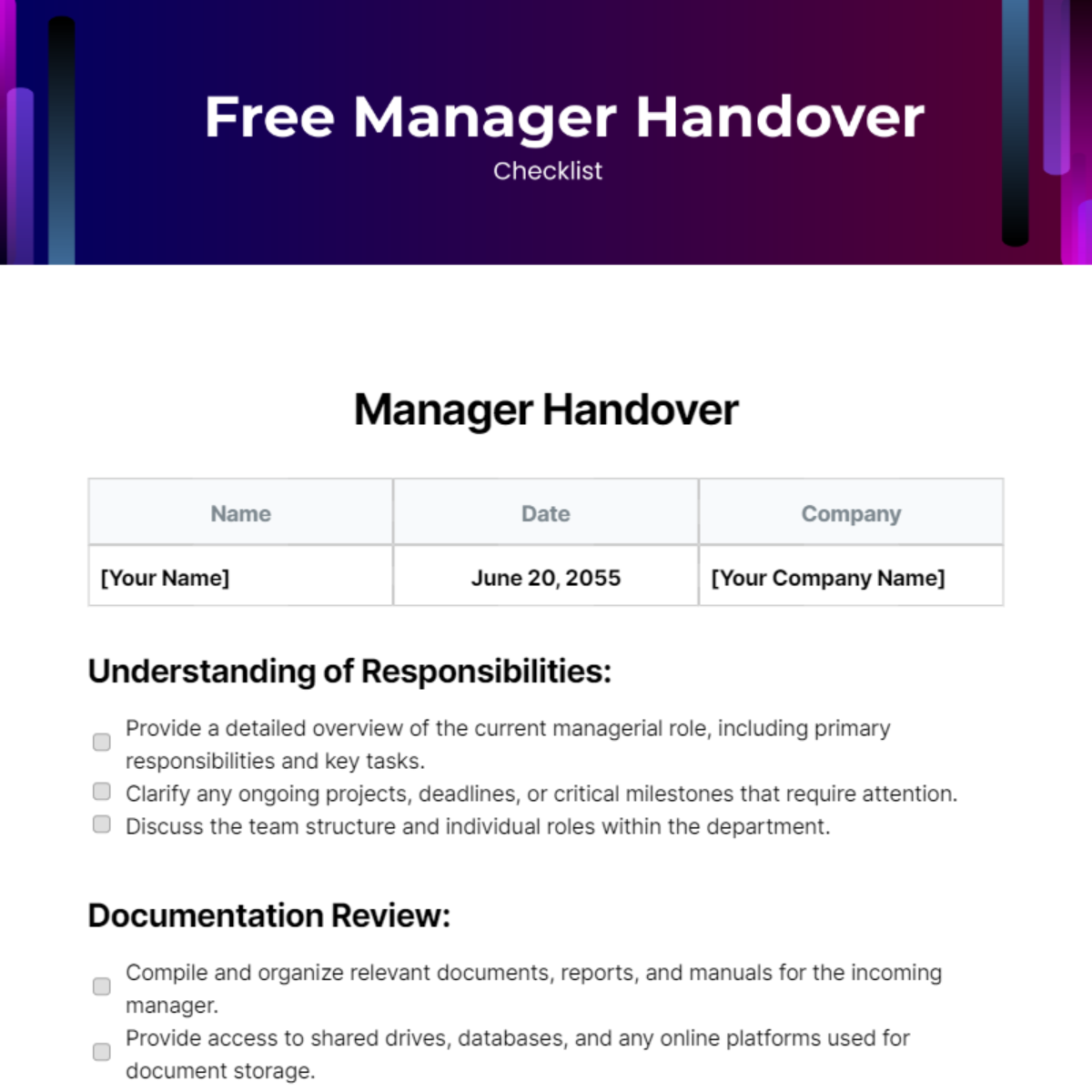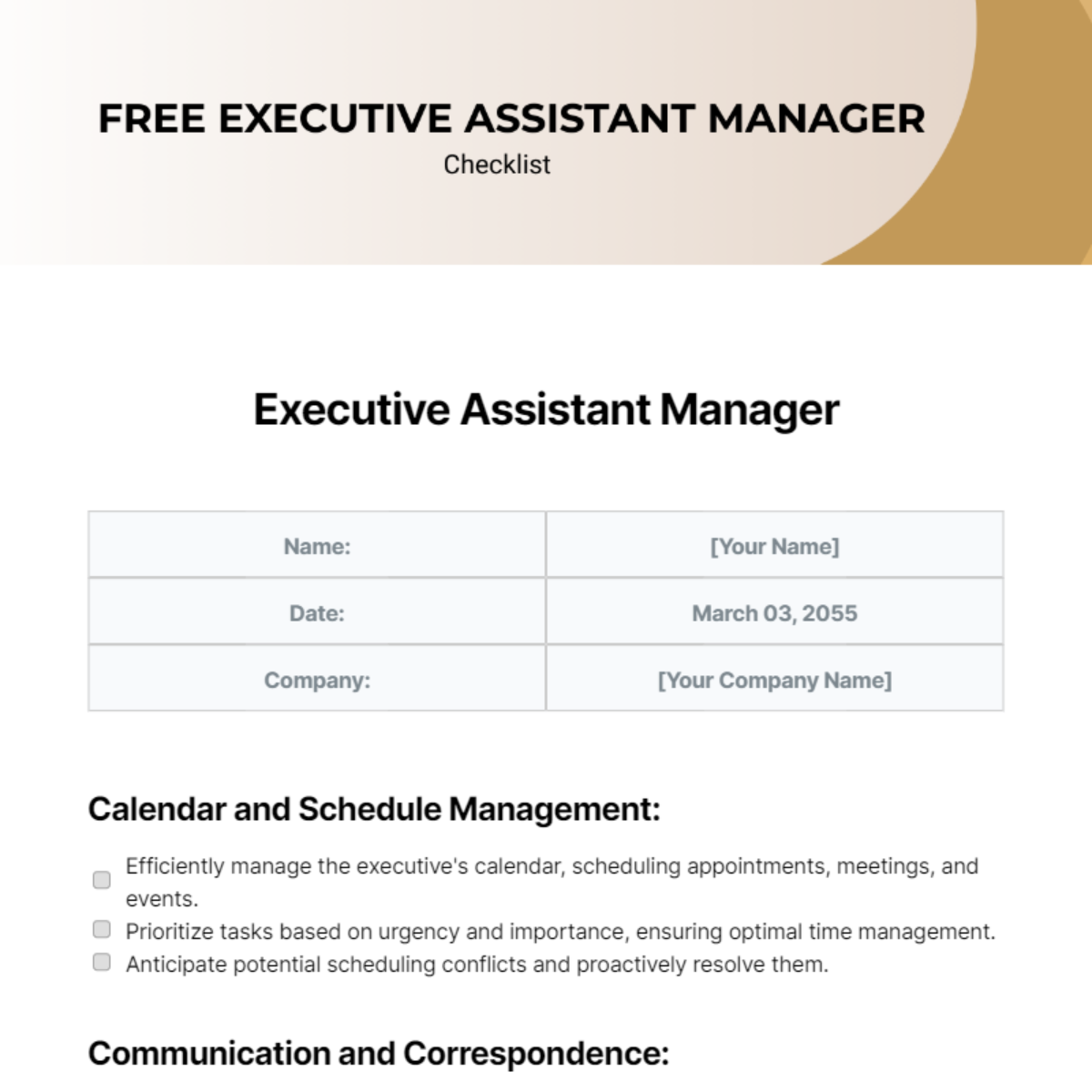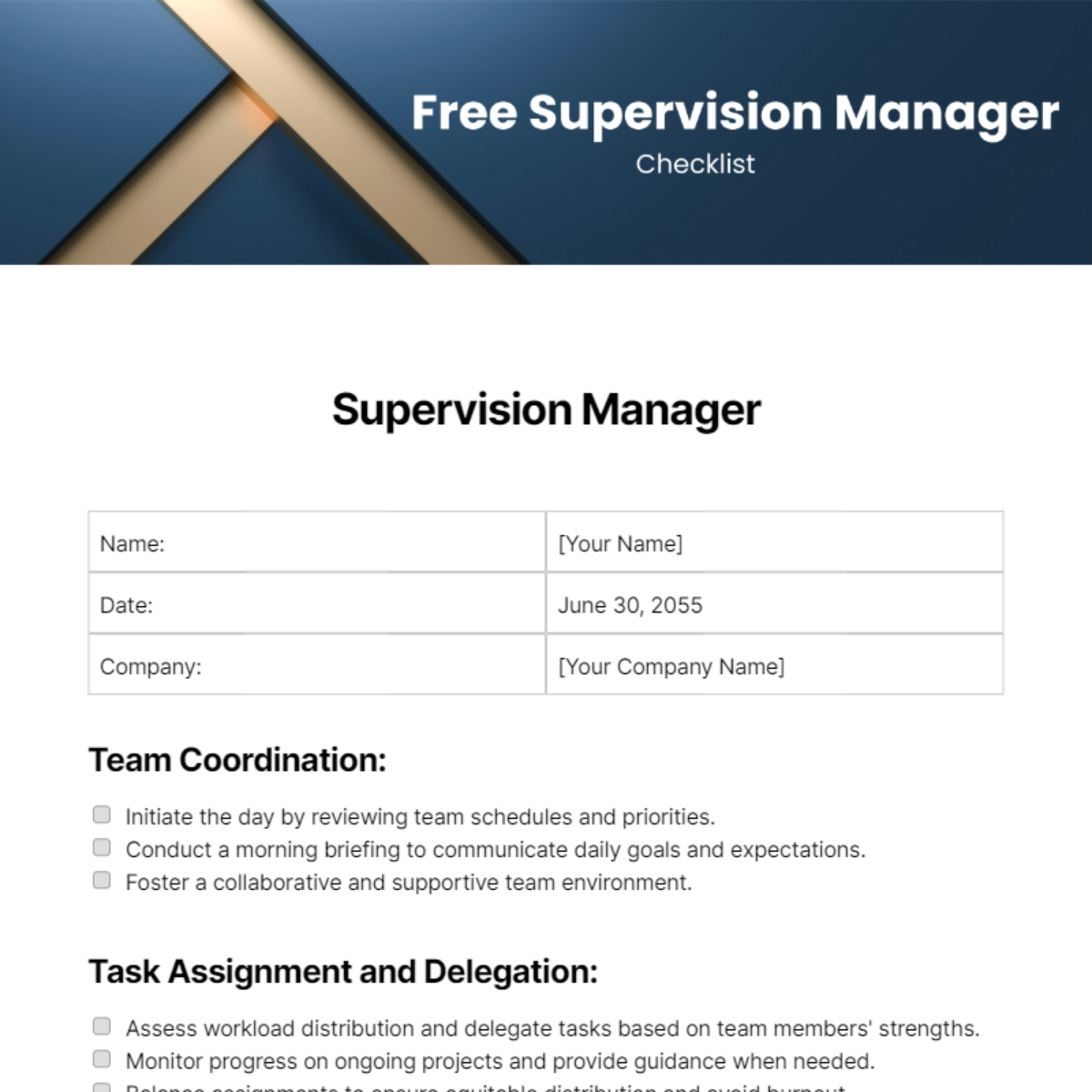Admin Manager
Name | Date | Company |
|---|---|---|
[Your Name] | March 10, 2055 | [Your Company Name] |
The Admin Manager Checklist serves as a comprehensive guide for individuals in the role of Administrative Manager, facilitating the efficient management of administrative functions within an organization. This checklist plays a pivotal role in maintaining organizational efficiency, streamlining processes, and fostering a positive work environment.
Office Operations:
Oversee day-to-day office operations, ensuring a smooth workflow and efficient use of resources.
Implement and maintain organized filing systems and document management procedures.
Manage office supply inventory to support uninterrupted daily activities.
Staff Management:
Provide leadership and guidance to administrative staff, fostering a positive work culture.
Facilitate training programs to enhance the skills and capabilities of administrative personnel.
Conduct regular performance reviews, set professional development goals, and ensure a motivated team.
Communication Management:
Coordinate internal and external communications, ensuring clarity and consistency.
Manage schedules, meetings, and appointments to optimize organizational efficiency.
Establish communication protocols to streamline information flow across departments.
Facilities Maintenance:
Supervise facilities maintenance, ensuring a clean, organized, and safe working environment.
Oversee repairs and maintenance activities, collaborating with relevant service providers.
Uphold compliance with health and safety regulations to guarantee employee well-being.
Budget Oversight:
Contribute to budget preparation for administrative expenses, ensuring cost-effectiveness.
Monitor expenditures and implement strategies to optimize operational costs.
Negotiate contracts with vendors and service providers to align with budget constraints.
Event Planning and Coordination:
Plan and coordinate organizational events, meetings, and conferences to facilitate effective collaboration.
Collaborate with various departments to ensure seamless execution of events.
Manage logistical details, including catering and venue arrangements.
Technology and Systems:
Oversee the use and maintenance of office technology and equipment for optimal functionality.
Implement efficient software and systems to enhance administrative tasks.
Address and resolve technology-related issues, providing training as necessary.
Policy and Procedure Compliance:
Ensure adherence to organizational policies and procedures to maintain a standardized approach.
Stay abreast of changes in regulations and update policies to ensure compliance.
Conduct regular training sessions to educate staff on compliance and ethical standards.
Vendor and Supplier Relations:
Manage relationships with vendors and suppliers, negotiating contracts and terms.
Evaluate service quality and address any issues or concerns promptly.
Optimize vendor relationships to ensure cost-effectiveness and quality service delivery.
Employee Services:
Implement employee services programs, including wellness initiatives and recognition programs.
Address employee inquiries and concerns related to administrative matters.
Foster a positive work environment through engagement activities and support services.
Travel Coordination:
Oversee travel arrangements for employees, ensuring compliance with policies and budget constraints.
Address travel-related issues and provide support as needed.
Streamline the travel process for efficiency and convenience.
Record Keeping and Documentation:
Maintain organized records of administrative activities, including expenses and contracts.
Document meeting minutes and important communication for future reference.
Ensure meticulous record-keeping in compliance with data protection and privacy regulations.
Training and Development:
Identify training needs for administrative staff and coordinate relevant programs.
Foster a culture of continuous learning within the administrative team.
Encourage skill development to enhance the capabilities of the team.
Conflict Resolution:
Address conflicts or issues within the administrative team promptly and professionally.
Implement conflict resolution strategies to maintain a positive work environment.
Foster open communication to prevent and address interpersonal challenges.
